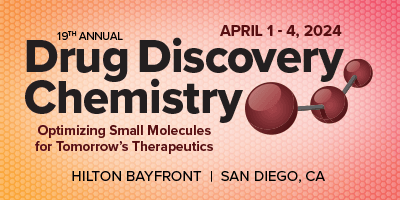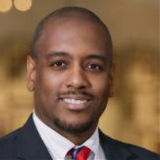講演者
Filter by:
Ruben Abagyan, PhD, Professor, Skaggs School of Pharmacy and Pharmaceutical Sciences, University of California, San Diego
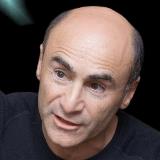
Dr. Ruben Abagyan is a Professor at the Skaggs School of Pharmacy and Pharmaceutical Sciences at the University of California, San Diego, which he joined in 2009. He received his Master’s and Ph.D. degrees in molecular physics at MPTI and MSU. At the European Molecular Biology Laboratory in Heidelberg he developed internal coordinate mechanics and structural docking approach (ICM) for modeling and docking. He received his tenure at New York University and Courant Institute of Mathematics and continued at the Novartis Institute and the Scripps Research Institute in La Jolla, California. Dr. Abagyan serves on international review panels for Institutes in Switzerland, UK, EU, and Hong Kong. He received CapCure awards, Princess Diana Award and medal in Sydney, Australia, American Association of Colleges of Pharmacy Teacher of the Year award, and UCSD-SSPPS 'Faculty of the Year' awards. R.A. authored and co-authored 340 research papers and book chapters, with over 40,000 citations and H-index of 96. His research interests include computational structural biology, methods for structure prediction, docking screens, and cheminformatics, with a particular focus on computer-aided drug and target discovery. In addition to molecular profiles, he also studies the FDA clinical records and unexpected post-marketing side effects of therapeutics.
Emel Adaligil, PhD, Senior Scientific Manager, Peptide Therapeutics, Genentech, Inc.
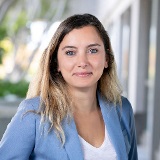
Emel Adaligil is a Senior Scientific Manager at Genentech where she leads macrocycle discovery and mRNA display platform. She received her PhD in chemistry from Tufts University where she developed peptide antibiotics composed of D-amino acids active against S. aureus and MRSA with the same action mechanism of vancomycin. Then, she completed her postdoc studies at Genentech working on developing cell-permeable macrocyclic peptides, structure elucidation of macrocyclic peptides by NMR spectroscopy, and computational methods and technology development of mRNA display platform.
Tomas Akerud, Associate Principal Scientist, Global Structural Chemistry, AstraZeneca R&D

Tomas Akerud currently holds a staff position in the Department of Mechanistic and Structural Biology at AstraZeneca R&D Gothenburg, Sweden, where he works as a biophysicist and project coordinator during early-stage drug discovery projects. He received his PhD in Biophysical Chemistry from Lund University in 2004, where he studied protein dynamics using NMR spectroscopy. Much of his PhD research was conducted at the Structural Chemistry Laboratory at Pharmacia/Biovitrum. He has developed methodology for determining affinities by ligand-detected NMR spectroscopy, studying enzymology using surface biosensors, and has an extensive experience in fragment-based lead generation.
Rima Al-Awar, PhD, Head, Therapeutic Innovation & Drug Discovery, Ontario Institute for Cancer Research
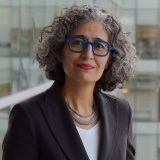
Dr. Rima Al-awar is the Head of Therapeutic Innovation and Drug Discovery at the Ontario Institute for Cancer Research (OICR; https://oicr.on.ca/) and Professor in the Department of Pharmacology & Toxicology and Department of Chemistry at the University of Toronto. With over 10-years’ progressive experience at Eli Lilly, she joined OICR in 2008 to focus on building a drug discovery program to help efficiently translate discoveries made in Ontario’s laboratories into novel oncology therapies. Under her leadership, the OICR Drug Discovery Program has played a major role in bridging the gap between academia and industry in Ontario by providing drug discovery capabilities. Today, the program is one of the largest of its kind in Canada, with a team of more than 35 researchers whose collective expertise spans the entire drug discovery process, from target identification and validation, to clinical candidate selection. Dr. Al-awar has published over 90 peer-reviewed publications and patent applications in the field of medicinal chemistry and drug discovery.
Bryce Allen, PhD, Co-Founder & CEO, Differentiated Therapeutics

Bryce Allen, Ph.D. was the founding Head of Integrated Data Sciences at Silicon Therapeutics and played a key role in building the company from three employees to over one hundred, culminating in its acquisition by Roivant Sciences in 2021, driven in large part by the cutting edge computational platform. During that period he spearheaded the development and application of the computational platform to drug discovery projects. He played a leading role in the discovery and optimization of SNX281, a first-in-class small molecule STING agonist currently in phase I clinical trials, taking the program from an initial AI discovered hit to a clinical candidate in <3 years. Starting his career at the bench, Bryce has accumulated domain expertise across biology, medicinal chemistry, physics, and computer science enabling the development of practical computer-aided discovery to drive data-driven decision making in drug development programs. He holds an Adjunct Faculty appointment in The Institute for Experiential AI at Northeastern University in Boston, MA, and is the author of >30 publications and patents. Bryce was a Postdoctoral Fellow in the Department of Biomedical Informatics at Harvard Medical School and holds a Ph.D. in Molecular & Cellular Pharmacology from the University of Miami Miller School of Medicine.
Timothy Allen, PhD, Head of ChemAI, Serna Bio

Dr. Timothy E H Allen is Head of ChemAI at Serna Bio. He completed his PhD in 2016 in the group of Professor Jonathan Goodman at the University of Cambridge, focusing on the application of chemistry and machine learning in toxicology. Following this, he performed post-doctoral research in Cambridge and at the United States Environmental Protection Agency in North Carolina, both in collaboration with Unilever, during which time he was awarded the Lush Science Prize and ESTIV Early Career Award. Tim joined Serna Bio in 2021, where he works to discover novel RNA-targeting small molecule therapeutics combining chemistry, machine learning, and cheminformatics as part of Serna Bio’s overarching aim to unlock the potential of the transcriptome as a drug target.
Michelle Arkin, PhD, Chair and Distinguished Professor, Pharmaceutical Chemistry & Director, Small Molecule Discovery Center, University of California, San Francisco

Michelle Arkin is Professor and Chair of Pharmaceutical Chemistry at the University of California, San Francisco, and co-director of the Small Molecule Discovery Center. Her lab focuses on developing chemical probes and drug leads for novel targets, with a particular interest in protein-protein interactions and protein-degradation networks. Prior to UCSF, Michelle worked at Sunesis Pharmaceuticals, where she helped discover protein-protein interaction inhibitors for IL-2 and LFA-1 (lifitigrast, marketed by Novartis). She is a co-founder of Ambagon and Elgia Therapeutics.
Hossam Ashtawy, PhD, Director, Artificial Intelligence & Machine Learning, 1859 Inc.

Hossam Ashtawy brings extensive expertise in developing & applying AI in drug discovery and design. His background in computer engineering, machine learning, drug discovery, and cheminformatics has resulted in several state-of-the-art machine-learning bioactivity models and related publications. Prior to joining 1859, Hossam led the development of ML potency and ADMET models at Atomwise that helped discover novel therapeutics and advance them to later stages of the drug discovery process. Additionally, he served as a tech lead for the Path Planning & Automated Driving team at Ford Motor Company. Hossam holds a B.S. and M.S. degree in computer engineering and earned his Ph.D. in electrical and computer engineering at Michigan State University where he conducted multi-disciplinary research concerned with machine learning and its application in drug discovery.
Kelly Bachovchin, Customer Engagement Scientist, Collaborative Drug Discovery

Kelly Bachovchian joined the CDD team to begin her industrial career after completing her PhD in Chemistry at Northwestern University. While at Northwestern, Kelly’s research focused on synthesizing and optimizing small molecule compounds for the treatment of neglected tropical diseases as part of Professor Michael Pollastri’s lab. She wishes to help other scientists better manage their data and globally connect to further their research
Jonathan B. Baell, PhD, Executive Director, Early Leads Chemistry, Lyterian Therapeutics

Jonathan Baell is Executive Director, Early Leads Chemistry at Lyterian Therapeutics in South San Francisco. Prior to 2023, he was Research Professor and Director of the Australian Translational Medicinal Chemistry Facility, which he established and grew over a decade. He has more than 25 years of experience in medicinal chemistry-led drug discovery and development, with more than 150 publications and 9000 citations, including first author Nature 2018, and several dozen granted patents, outcomes for which include licensing deals and clinically trialed drug candidates. His translational efforts have resulted in major awards. He holds significant editorial and societal positions and is Senior Editor of Future Medicinal Chemistry and Chair of the International Chemical Biology Society. His passion is HTS library design, hit triage, and hit-to-lead and lead optimization. He is perhaps best known as the inaugural architect of the field of PAINS.
Simon Bailey, PhD, MBA, Executive Vice President & Head of Drug Discovery, Plexium, Inc.

As the Head of Drug Discovery at Plexium, Simon oversees the company’s efforts to identify novel protein degrader drugs that address significant unmet medical needs. Simon joined Plexium in 2019, bringing more than 25 years of experience in medicinal chemistry and small molecule drug discovery leadership. From 1995-2016, Simon had leadership roles in medicinal chemistry at Pfizer and subsequently he was the Head of Research and Global Pipeline Leader for Intercept Pharmaceuticals. Simon gained his Ph.D. and was the Hibbert Prize winner in synthetic organic chemistry at the University of Manchester and completed postdoctoral studies under Prof. Leo Paquette. He earned an MBA from the University of California, San Diego. Simon is a 2021 recipient of the American Chemical Society’s Hero of Chemistry award for his role in the discovery of Lorbrena.
Carlo Ballatore, PhD, Professor, Pharmaceutical Science, University of California San Diego

Dr. Ballatore is a Professor at University of California San Diego (UCSD) Skaggs School of Pharmacy and Pharmaceutical Sciences. His training and expertise are in medicinal chemistry, with >20 years of experience in drug discovery in both the biotechnology (~3 years) and academic drug discovery settings. Over the past several years, the Ballatore laboratory has been engaged in several NIH-funded multidisciplinary drug/probe discovery programs by providing expertise in medicinal chemistry and drug design. Such collaborations include ongoing programs directed towards the discovery and development of candidate treatments for: (a) neurodegenerative tauopathies (e.g., Alzheimer’s disease), in collaboration with the Center for Neurodegenerative Diseases Research at University of Pennsylvania; and (b) parasitic infections, such as trypanosomiasis and schistosomiasis, in collaboration with the Center for Discovery and Innovation in Parasitic Diseases at UCSD. In addition, the Ballatore laboratory has also been actively involved in the investigation of basic, fundamental principles in medicinal chemistry, such as in the area of isosteric replacements.
Svetlana Belyanskaya, PhD, former Vice President, Biology, Anagenex

Dr. Belyanskaya is accomplished scientific leader in the field of small molecule drug discovery and an expert in DNA encoded library platform. She was involved in the development of DEL platform for 20 years. Svetlana has made significant contributions to the design and development of the DEL technology at Praecis Pharmaceuticals and, later, at GlaxoSmithKline. She was instrumental in discovering first DEL-sourced molecule to progress into clinical trials, a potent and selective inhibitor for enzyme soluble epoxide hydrolase (hsEH). At GSK, Svetlana successfully led team of scientists on multiple scientific programs. Svetlana has deep expertise in biochemistry, molecular biology, cell biology and very passionate about future development of DEL technology with goal to find novel quality leads that bring value for the treatment of diseases with unmet medical needs
Goncalo Bernardes, PhD, Professor, Department of Chemistry, University of Cambridge

Goncalo started his independent research career in 2013 at the University of Cambridge as a Royal Society University Research Fellow. In 2018, he was appointed University Lecturer and was promoted to Reader in 2019, and to Full Professor in 2022. Goncalo is the recipient of three European Research Council grants; and was awarded the Harrison-Meldola Memorial Prize in 2016, from the Royal Society of Chemistry, the 2020 Young Chemical Biologist Award from the International Chemical Biology Society (ICBS), the Blavatnik Award for Young Scientist in the UK in 2021, and recently the EFMC-WuXi AppTec Award for Excellence in Chemical Biology. His research group interests focus on the use of chemistry principles to tackle challenging biological problems for understanding and fighting cancer, and he has co-founded four companies that use technologies he developed in his lab. In addition, he is a Senior Fellow at the largest global venture incubator-Flagship Pioneering, which generated Moderna.
Jean Bernatchez, PhD, Senior Scientist and San Diego R&D Group Leader, Eurofins Discovery
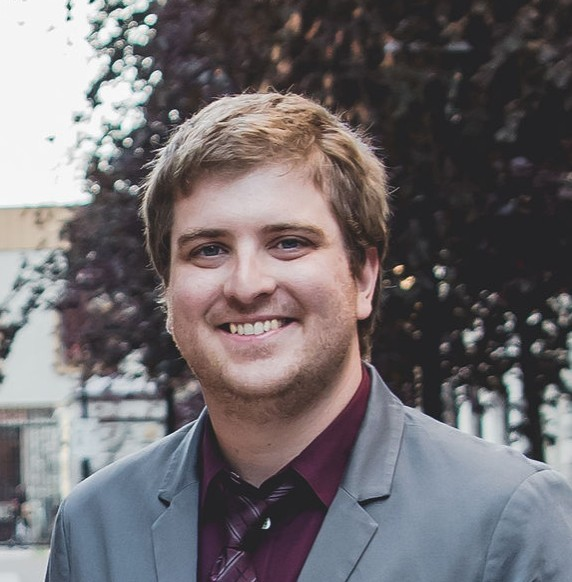
Dr. Bernatchez is a Senior Scientist and the San Diego R&D Group Leader at Eurofins Discovery, and is responsible for developing the company’s portfolio of biochemical assays in the areas of emerging drug targets and targeted protein degradation. Jean has extensive biochemical and cell-based assay development experience across multiple discipline areas in infectious diseases and oncology. Prior to joining Eurofins Discovery, Jean was a postdoctoral scholar at the Skaggs School of Pharmacy and Pharmaceutical Sciences at the University of California, San Diego, where he developed drug screening assays and conducted high-throughput screening campaigns to identify compounds with activity against Zika virus, SARS-CoV-2, the tropical parasites Trypanosoma cruzi and Leishmania donovani, glioblastoma and meningioma. In over 10 years of work in the drug discovery field, Dr. Bernatchez has published over 30 scientific articles and book chapters in the areas of antivirals, antiparasitics and anticancer agents. He holds a Bachelor of Science degree in Biochemistry (First-Class Honors) and a Doctor of Philosophy degree in Biochemistry (Chemical Biology Interdepartmental Graduate Program), both from McGill University in Montreal, Quebec, Canada.
Alex Berndt, PhD, Structural Biologist, Astex Pharmaceuticals Ltd

Alex Berndt is a Research Associate in the Molecular Sciences group at Astex Pharmaceuticals, Cambridge (UK). He joined in 2018, with a focus on enabling pharmaceutical targets by means of electron cryo-microscopy (cryo-EM). Before Astex, Alex carried out structural research using X-ray crystallography and cryo-EM as an Investigator Scientist at the MRC Laboratory of Molecular Biology Cambridge (UK) with a special interest in PI3-kinases and mTOR. He holds a BSc in Biochemistry and a PhD in structural biology from the Max-Planck-Institute of Molecular Physiology Dortmund, Germany.
Hans-Peter N. Biemann, PhD, Distinguished Scientist, Integrated Drug Discovery, Sanofi

Hans-Peter Biemann has originated innovative discovery programs and applied emerging small molecule technologies during tenures in Genzyme’s and Sanofi’s Drug Discovery units. Contributions on preclinical and clinical agents have included partnerships with academic leaders and start-ups. Working across various disciplines (protein biochemistry, cell biology, structural biology, biophysics), Hans has conducted and led phenotypic, fragment-based, and HTS-based drug discovery. He established successful FBDD, high-res Cryo EM drug design, Affinity Selection_Mass Spectrometry over the past 15 years at Sanofi/Genzyme. Prior to joining Genzyme in the 1990s, he completed a post doc in Daniel Koshland’s U.C. Berkeley group and trained in Raymond Erikson’s Harvard group (Ph.D). His B.S. was earned at Yale.
Henry Blackwell, PhD, Senior Scientist, Medicinal Chemistry, AstraZeneca

Henry is a Senior Medicinal Chemist working in the Hit Discovery department at AstraZeneca focused on Fragment-Based Lead Generation. He carried out his PhD research at the University of Cambridge under the supervision of Professor Matthew J. Gaunt where he developed photochemically mediated synthetic methods for the synthesis of difficult-to-access chemotypes. At AZ, Henry has led a range of hit-to-lead projects spanning a number of modalities and target classes. He has a particular interest in covalent drug discovery, target selection, and application of enabling technologies within drug discovery.
Rafael Bottos, Co-Founder & CEO, Aptah Bio Inc.

Co-founder of Aptah Bio, Mr. Rafael Bottos is graduated in Engineering at the Federal University of Santa Catarina (Brazil) and is an Alumni student at Harvard Business School Endeavor Program (USA). He is a former researcher at the Fraunhofer Institute (Germany), MIT Advisor in Brazil, Endeavor Global member selected out of 3,258 candidates worldwide, award winning “Entrepreneur of the Year” - Exame PME 2014 (Brazil), and founder of several startups, including Vesper Ventures (2018), a company builder and the first venture capital fund 100% focused on Biotech in Brazil. Mr. Bottos has exceptional skills and internationally recognized success in the field of business, specifically in the engineering technology industry, venture capital, and biotech, having held executive and senior roles in highly successful startups. He combines his advanced knowledge of entrepreneurial strategy with a fundamental understanding of engineering technology, allowing him to repeatedly succeed in applying cutting-edge technology to different industries, from manufacturing to biotech.
Paul Brennan, PhD, Professor, Nuffield Department of Medicine, University of Oxford
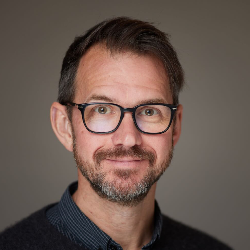
Paul Brennan received his PhD in organic chemistry from UC Berkeley. Following post-doctoral research at Cambridge University, Paul spent eight years working in the pharmaceutical industry at Amgen and Pfizer. In 2011, Paul joined the Structural Genomics Consortium at the University of Oxford. Over the course of his career, Paul has worked on most major drug classes of drug targets: kinases, GPCRs, ion-channels, metabolic enzymes, and epigenetic proteins. Paul is currently Professor of Medicinal Chemistry and CSO of the Alzheimer’s Research UK Oxford Drug Discovery Institute in the Centre for Medicines Discovery at the University of Oxford. His research is focused on finding new treatments for dementia.
Dean G. Brown, PhD, Vice President & Head, Chemistry, Jnana Therapeutics

Dean Brown is VP and Head of Chemistry at Jnana Therapeutics. Prior to Jnana, he was Director of Chemistry at AstraZeneca within the Hit Discovery Department, Discovery Science IMED Biotech Unit. He obtained a B.S in chemistry at Abilene Christian University (Abilene, TX) and a Ph.D. at the University of Minnesota (Minneapolis) in organic chemistry. He has over 20 years of experience in industry with AstraZeneca. Dean has been responsible for building many new scientific programs in both neuroscience and infection, several which have resulted in successful transition to clinical trials. His scientific interests are in lead generation, library design, DNA-encoded library screening, synthetic chemistry and applications of computational chemistry. Dean is listed as an author or co-author on more than 60 publications and patent applications in medicinal chemistry and drug design, including granted patents on clinical candidates.
Kevin Burgess, PhD, Gradipore Chair of Chemistry, Texas A&M University

Kevin Burgess, Gradipore Chair of Chemistry at Texas A & M University, has taught organic chemistry to graduates and undergraduates for more than thirty years. Dr. Burgess has built a research program around a diversity of interests including organometallic catalysis, fluorescent dyes, peptidomimetics and medicinal chemistry. He has published ~360 research papers and ~13 patents. Currently, Dr. Burgess’ research focuses on small molecules interacting with protein surfaces. He introduced the concept of universal peptidomimetics, and developed from that a suite of techniques first based on Exploring Key Orientations, then on Backbone Matching: a new approach for design of small molecules to perturb protein-protein interactions that involves using crystallographic information on protein-protein interactions (PPIs) to filter user-generated virtual libraires of cyclo-organopeptides. cyclo-Organopeptides are macrocycles encompasing an endocyclic organic part. Dr Burgess has designed small molecules for active targeting of cancer cells particularly via the TrkC receptor; and potential applications of this work are in diagnostics, imaging, and therapeutics. The molecule D3 he designed to bind the TrkA receptor reached phase III clinical trials for treatment of dry-eye disease. Much of his work involves fluorescent dyes. The Burgess Group has published extensively on BODIPY structures, and on the mode of action and applications of tumor-seeking cyanine dyes.
Tauseef Butt, PhD, President & CEO, Progenra, Inc.

Tauseef Butt received his PhD degree in Molecular Biology from The University of Glasgow, Scotland. He was a Staff Fellow at the National Institutes of Health, Bethesda, MD, before joining SmithKline (now GSK) Pharmaceuticals. He serves as President and CEO of Progenra. He was an Adjunct Professor in Biochemistry and Biophysics, at University of Pennsylvania Medical School, Philadelphia, PA. He is also an Adjunct Professor in Biomedical Engineering at Drexel University, Philadelphia. He has been instrumental in raising ~$120 million capital. He is active in numerous national and regional professional organizations, including several dedicated to biotechnology.
Matthew Calabrese, PhD, Senior Director & Head, Structural & Molecular Sciences, Pfizer Global R&D

Matt Calabrese earned his PhD in Molecular Biophysics and Biochemistry from Yale University before joining the lab of Dr. Brenda Schulman at St. Jude Children's Hospital for a postdoctoral fellowship on the structure and function of E3 ligases. He then joined the Structural and Molecular Sciences group at Pfizer in Groton CT which he presently leads as Senior Director.
Yong Cang, PhD, Professor, ShanghaiTech University; Co-founder & CSO, Degron Therapeutics

Yong Cang is the Co-founder and CSO of Degron Therapeutics. He is a scientific leader in targeted protein degradation, ubiquitin ligase biology, and cancer immunotherapy with 30+ publications in top biomedical journals. Dr. Cang pioneers novel molecular glue degrader discovery strategies, with a focus on screening approach development and mechanistic understanding of interactions between molecular glue drugs, ubiquitin ligases, and neo-substrates. Dr. Cang is a professor and head of the Laboratory of Targeted Protein Degradation in the School of Life Science and Technology of ShanghaiTech University. He previously was an assistant professor in the NCI-designated Cancer Center of Sanford Burnham Prebys Medical Discovery Institute and a professor of Zhejiang University. Dr. Cang consulted for pharmaceutical industry and venture funds. Dr. Cang received a Bachelor of Science degree from Fudan University and a PhD in Molecular Genetics from the Albert Einstein College of Medicine. He completed his postdoctoral training with Professor Stephen Goff at Columbia University and HHMI.
Charly Chahwan, PhD, Co-Founder & CSO, SyntheX, Inc.

Charly Chahwan is the co-founder and CSO of SyntheX. After completing his HBSc degree in Physiology and Biophysics from the University of Toronto, Charly joined the department of Molecular Biology at the Scripps Research Institute in California. There, he studied molecular mechanisms of cell cycle control, the ubiquitin-proteasome system, and DNA repair pathways. After Scripps, Charly joined the PhD program at the Department of Molecular Genetics at the University of Toronto where he focused on additional mechanisms that ensure faithful transmission of chromosomes and maintain genomic stability. He was awarded multiple governmental grants and set up independent collaborations with scientists in North America and Europe, resulting in over 20 peer-reviewed publications. Following years of research in molecular biology and cancer genetics, Charly co-founded SyntheX, which focuses on developing therapeutics for classically intractable cancer targets.
Andrew Chang, PhD, CEO, DeepSeq.AI

Andrew Chang is the Co-Founder and CEO of DeepSeq.AI, a startup providing a data and AI-powered platform for innovative protein design. This platform empowers scientists to create proteins for a wide range of applications, from diagnostics to drug development, with enhanced accuracy, efficiency, and creativity. With a rich background as an AI scientist specializing in DNA and protein engineering, Andrew has not only won several global machine learning competitions, but also possesses a profound understanding of the essential factors in building and training versatile AI systems. Before founding DeepSeq.AI, he was instrumental in assisting Bay Area startups in developing both their wet-lab and dry-lab machine learning capabilities. Andrew's postdoctoral work at Genentech was pioneering in using high-throughput DNA sequencing for protein engineering. He holds a PhD in biophysics from the University of Michigan and a BS in physics from National Taiwan University.
Pratik R. Chheda, PhD, Scientist, DNA Encoded Library DEL, Janssen Pharmaceuticals

Pratik is a scientist within Johnson & Johnson's Chemistry Capabilities group, specializing in DNA-encoded Libraries for Hit-finding. He obtained his Ph.D. from the University of Iowa, where he contributed significantly to medicinal chemistry projects under Professor Robert J Kerns. At JNJ, Pratik has led impactful DEL-Hit-ID projects across diverse target classes.
Sung Jin Cho, PhD, CEO, CIMPLRX

Sung Jin Cho, PhD, boasts over 25 years of experience in drug discovery platform development. Since 2017, Dr. Cho has held the roles of founder and CEO at CIMPLRX, where he has been instrumental in building the drug discovery pipeline and overseeing the development of the XAI (Explainable Artificial Intelligence) platform. Prior to his tenure at CIMPLRX, he worked at Bristol Myers Squibb, Amgen, and CHDI, where he developed a range of computational and visualization tools to tackle diverse challenges in drug discovery. Dr. Cho earned his doctorate in medicinal chemistry from the UNC Eshelman School of Pharmacy at the University of North Carolina at Chapel Hill.
Frederick Cohen, PhD, Vice President, Medicinal Chemistry, Nurix Therapeutics, Inc.

Fred Cohen is a Medicinal Chemist and drug hunter with over 20 years of experience in the industry. He has worked in multiple therapeutic areas including oncology, antibiotics, and neurodegeneration. He joined Nurix in 2017 and has served as Head of Medicinal, Analytical, and Computational Chemistry since April 2020. Prior to joining Nurix, he served at Achaogen, Genentech, and Tularik. Dr. Cohen earned his bachelor’s degree in Chemistry from Occidental College and his PhD in Chemistry from the University of California, Irvine.
Laetitia D. Comps-Agrar, PhD, Senior Principal Scientist, Biochemical & Cellular Pharmacology, Genentech, Inc.

Laetitia is Senior Principal Scientist in the department of Biochemical and Cellular Pharmacology at Genentech, where she leads a lab that is instrumental in advancing therapeutic antibodies from early-stage research to IND-enabling studies within different therapeutic areas including ocular, immunology, and oncology. She has been at Genentech for over 12 years and has contributed to numerous pipeline projects, three of them are currently in clinical trials: anti-IL33 MAb for Geographic Atrophy, anti-FGFR1c/KLB MAb for type 2 diabetes, and anti-TIGIT MAb for solid tumors. In addition, Laetitia leverages her expertise in studying protein-protein interactions on live cells to solve complex biology problems. Laetitia initially joined Genentech as a Postdoctoral Research Fellow in Protein Chemistry, where she designed and performed structure function studies to decipher the molecular organization of FGFR1c:BKlotho complex and elucidated the mechanism of action of several therapeutic candidates. Laetitia obtained a PhD in Molecular Pharmacology at the University of Montpellier, France, where she studied the pharmacology of G-protein coupled receptors and delineated how their oligomerization influences their physiological function.
Michael Dabrowski, CEO, Pelago Bioscience
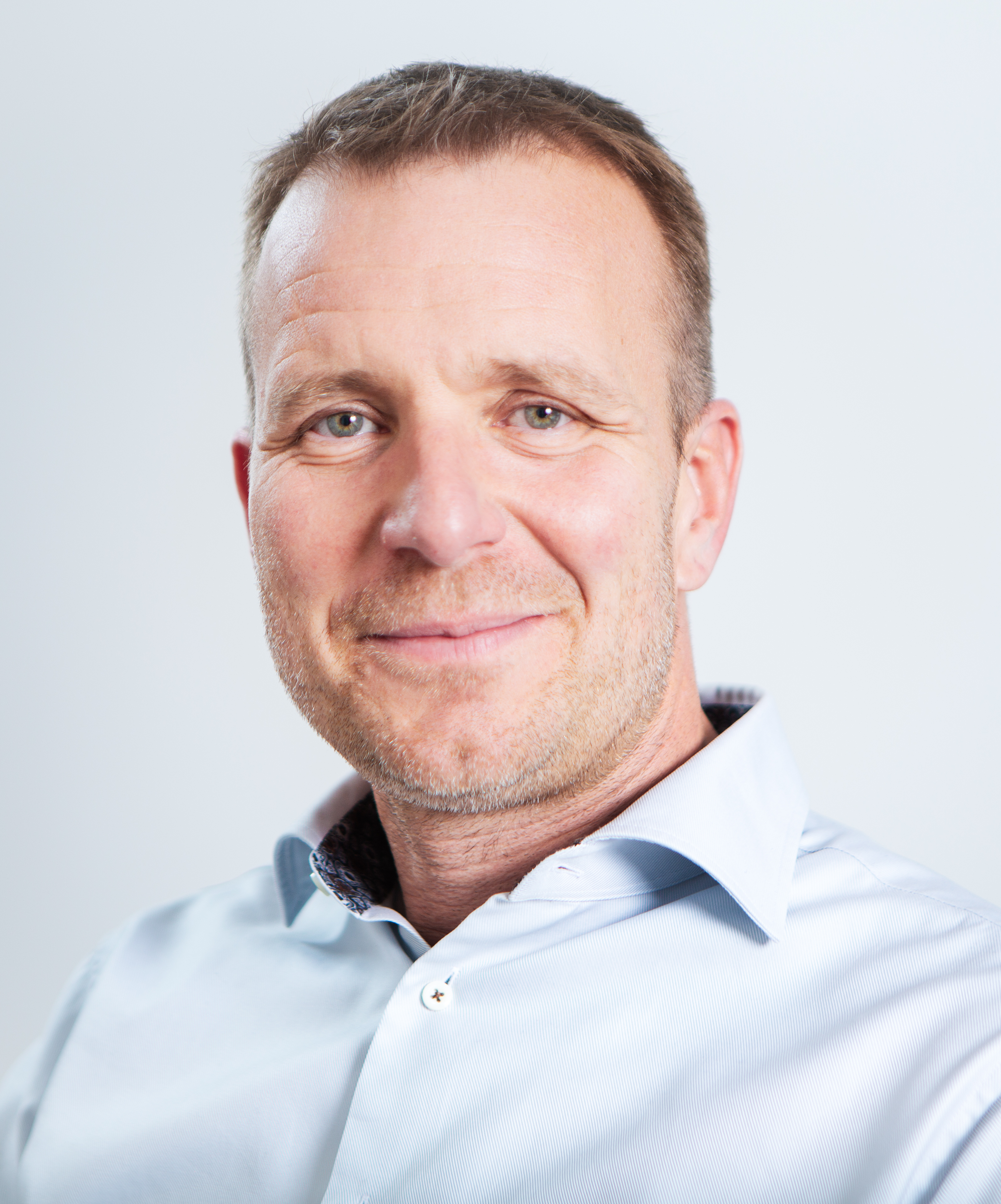
Michael Dabrowski, PhD is a co-founder and the CEO of Pelago Bioscience. Michael is a seasoned in vitro pharmacologist and biological assay developer with experience stretching from senior scientist and technology expert, to project and scientific leader and manager. Michael has 15 years of Drug Discovery experience from Novo Nordisk and AstraZeneca in multiple therapeutic areas and a strong track delivery record of science, project, people and budget management.
Olga Danilchanka, PhD, Principal, MRL Ventures Fund

Olga Danilchanka is a Principal at MRL Ventures Fund, the corporate venture arm of MSD. Olga's focus is on investing in preclinical stage companies that translate novel biology into human medicines across therapeutic areas of high unmet need. Currently, she serves as a director on the board of Therini Bio and as an observer on the boards of Ambagon Therapeutics, Caraway Therapeutics, Eyebiotech Limited (EyeBio), and PAQ Therapeutics. Prior to joining MRLV in 2018, Olga coordinated the microbiome discovery efforts at the MRL Cambridge Exploratory Science Center, a subsidiary of MSD, where she was responsible for identifying immunological pathways through which the microbiome may contribute to disease progression. Before her time at Merck, Olga worked at Epiva Biosciences, a startup founded by Flagship Pioneering (merged with Evelo Biosciences). Olga has a doctorate in microbiology from the University of Alabama at Birmingham and completed her postdoctoral training at Harvard Medical School.
Tom Davies, PhD, Director, Molecular Sciences, Astex Pharmaceuticals

Tom Davies is Director of Molecular Sciences at Astex Pharmaceuticals and has held positions in both structural biology and computational chemistry departments. Joining Astex in 2001 as a protein crystallographer, he has been responsible for leading fragment-based drug discovery projects against multiple therapeutic targets and has been associated with five candidate molecules which have entered clinical trials, including the AKT inhibitor capivasertib. He has held a number of other leadership positions including Head of Target Identification, with responsibility for assessment and selection of therapeutic targets entering Astex’s discovery portfolio and Head of Structural Bioinformatics. Before Astex, he carried out postdoctoral research at the Laboratory of Molecular Biophysics, University of Oxford on cyclin-dependent kinase inhibitors. He holds a BSc in Chemistry and a DPhil in protein crystallography from the University of York, UK.
Ben J. Davis, PhD, Research Fellow, Biology, Vernalis R&D Ltd.

Dr. Ben Davis is a Research Fellow at Vernalis Research, a biotech company based in Cambridge UK which has been at the forefront of fragment-based approaches since 1998. An NMR spectroscopist and biophysicist by training, his current research focus is the development of biophysics and FBLD methods for challenging therapeutic targets and systems. Dr Davis studied for his PhD in protein folding and molecular interactions with Professor Alan Fersht at Cambridge University, and then studied the interactions of small molecules with proteins and RNA. He has over 20 years’ experience in the drug discovery industry. He has contributed to seven books over the last decade and is an author on more than forty scientific publications. He is a frequent speaker at scientific conferences and has been running FBLD training workshops since 2007.
Anwesha Dey, PhD, Director & Distinguished Scientist, Discovery Oncology, Genentech Inc.

Anwesha Dey is a Director and Distinguished Scientist in the Discovery Oncology Department at Genentech. Prior to this position, she held postdoctoral research fellowships in the laboratory of Vishva Dixit at Genentech and at the Institute of Molecular and Cell Biology (IMCB), A*STAR, Singapore, in the laboratory of Sir David Lane. Her scientific research at Genentech is focused on understanding the biology of Hippo and PI3K signaling pathways and how they can be targeted for cancer therapy. She has served as both the Project Team Leader and Biology Lead for multiple drug discovery programs at Genentech. Anwesha has published extensively in several high impact journals. She serves on the Scientific Advisory Board (SAB) of the Keystone Symposia and is a recipient of the 2022 GWP Emerging Leader Award at Genentech and the 2023 Distinguished Service Alumni award from University of Maryland at Baltimore County.
Jose Duca, PhD, Global Head Computer Aided Drug Discovery, Global Discovery Chemistry, Novartis Institutes for Biomedical Research Inc.

Jose is the Global Head of Computer-Aided Drug Discovery (CADD), part of Global Discovery Chemistry at the Novartis Institutes for BioMedical Research (NIBR). Jose joined Novartis in 2010, after ten years with the Schering-Plough Research Institute and Merck Research Laboratories in Kenilworth, NJ, USA, where he had increasing responsibilities in the CADD group. His expertise covers computational medicinal chemistry, molecular thinking, novel modes of action to drug the undruggable, ab initio calculations, molecular recognition, kinetics, solvation, protein-protein interactions and structure-based drug design. Jose is constantly pushing the frontiers of drug discovery, where he has contributed novel approaches for many projects in complex target spaces. With the vision of a fully integrated computational drug discovery team, bringing together drug discovery knowledge with hard-core physics and math and leveraging the fast evolution of the computational field, Jose has built an outstanding global team. Jose is passionate about innovation, servant leadership, music, baseball, football, and wine. He is on a mission to help drug discovery find the fastest path to impact human medicine.
Georg Duenstl, PhD, Vice President, Drug Discovery, DeepCure

Having served on DeepCure’s Scientific Advisory Board since its inception in 2018, Georg joined the company as Vice President of Drug Discovery in 2022. He has over 16 years of drug discovery experience emphasizing pharmacology, strategy, and innovation. Before joining DeepCure, Georg was an Associate Research Fellow at LEO Pharma. He worked for more than 13 years in various positions at the company’s Danish headquarters and its Boston-based Science & Tech Hub, where he served as Chief Scientist. Georg studied in Germany and the US and holds a Ph.D. in Biochemical Pharmacology and MSc in Biology from the University of Konstanz. He also completed advanced executive education programs at the Wharton School of the University of Pennsylvania (CPD) and the MIT Sloan School of Management (ACE).
Anne Edwards, PhD, Scientist II, Revolution Medicines

I got my PhD from the University of Utah with Ryan Looper with a focus on natural product total synthesis. I then worked for Richard Lee at St. Jude Children's Research Hospital in my post-doctoral fellowship. I have been at Revolution Medicines for 4 years.
Stephan Eismann, PhD, Founding Scientist & Machine Learning Lead, Machine Learning & Engineering, Atomic AI

Stephan leads the ML Team at Atomic AI. Prior to joining Atomic, he did his PhD in the AI Laboratory at Stanford University where his research focused on the development of novel ML algorithms for problems in structural biology. Originally from Germany, he studied physics in Heidelberg and London before coming to the US.
Sean Ekins, PhD, Founder & CEO, Collaborations Pharmaceuticals, Inc.

Sean is founder and CEO of Collaborations Pharmaceuticals, Inc., which is focused on using machine learning approaches for rare and neglected disease drug discovery. Sean graduated from the University of Aberdeen; receiving his MSc, PhD, in clinical pharmacology and DSc in science. He was a postdoctoral fellow at Lilly Research Laboratories, before working as a senior scientist at Pfizer and then Eli Lilly. He went on to join several startup companies at increasingly senior levels. Since 2005, he has been awarded over 20 NIH and DOD grants (STTR/SBIR grants, R21, UH2 and R01) as well as performing as a consultant on many others. He has authored or co-authored >360 peer reviewed papers, book chapters, edited 5 books on different aspects of drug discovery research and using computational approaches. He recently authored a book on "winning Grants." He has a passion for finding new collaborators and developing new treatments for neglected and rare diseases as well as advancing new technologies for drug discovery.
Daniel A. Erlanson, PhD, Senior Vice President, Innovation and Discovery, Frontier Medicines Corporation
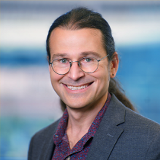
Dr. Daniel A. Erlanson is the VP of Chemistry for Frontier Medicines, which is using covalent fragments, machine learning, and chemoproteomics to target proteins often thought undruggable. Prior to Frontier he co-founded Carmot Therapeutics, where he contributed to two clinical-stage molecules. Before Carmot, Dr. Erlanson spent a decade developing fragment-based discovery technologies and leading medicinal chemistry projects at Sunesis Pharmaceuticals. Dr. Erlanson was an NIH postdoctoral fellow with James A. Wells at Genentech, earned his PhD in chemistry from Harvard University in the laboratory of Gregory L. Verdine, and his BA in chemistry from Carleton College. He has co-edited two books on fragment-based drug discovery and is an inventor on more than a dozen issued patents and an author of more than forty scientific publications. He also runs a blog devoted to fragment-based drug discovery, Practical Fragments (http://practicalfragments.blogspot.com/).
- AI/Machine Learning for Early Drug Discovery - Part 2
- Covalent Modifications & Induced Proximity
- Fragment-Based Drug Discovery
- SC2: Fragment-Based Drug Design: Advancing Tools and Technologies
- Oral Peptides & Macrocyclics
- Protein-Protein Interactions
- RNA-Modulating Small Molecule Drugs
- Degraders & Molecular Glues - Part 2
John Erve, PhD, President, Jerve Scientific Consulting

John Erve is from Chicago and studied Chemistry (BS, MS) at the University of Chicago and earned a PhD in Toxicology at Oregon State University. Following postdoctoral work at Vanderbilt (1995-1999) he joined BD-Biosciences (Woburn, MA) as a Study Director. In 2002, he joined AstraZeneca (Sweden) where he characterized reactive metabolites. In 2004 he joined Wyeth (Collegeville, PA) as a Principal Scientist responsible for metabolite identification. In 2010, John joined Novartis (Cambridge, MA) as a Lab Head in Analytical Sciences. John returned to drug metabolism at Elan Pharmaceuticals (San Francisco, CA) in 2012 and later formed Jerve Scientific Consulting, Inc to help small biotech companies in the Bay area with their drug discovery efforts. John was a certified D.A.B.T. from 2004 to 2019.
Ghotas Evindar, PhD, Senior Vice President, Head of Drug Discovery, 1859, Inc.

Before recently joining 1859 Inc, Ghotas was VP and head of drug discovery at Exo Therapeutics in Watertown, MA. He has authored well over 50 publications and patents in the area of drug discovery and is committed to education surrounding DNA-encoded library (DEL) technology, leading a number of DEL roundtable discussions and courses over the last several years. He was born and raised in the Kurdish mountains before migrating to Canada. He completed his undergraduate and MSc degrees at the University of Waterloo, concentrating on synthesis and structure-activity studies of aureobasidins. He then joined Vertex Pharmaceuticals, in Cambridge, as a medicinal chemist. While at Vertex, he was instrumental in the success of P38 MAP Kinase (first and second generation), ICE-1 inhibitors (second generation), and early ZAP-70 programs. After four years at Vertex, and four clinical candidates, he moved to the University of Toronto to pursue a PhD degree in organic chemistry with focus on “Novel Approaches to Synthesis of Nitrogen Containing Heterocycles”. After completing his PhD with Dr. Robert Batey, he moved back to the Boston area to join Praecis Pharmaceuticals as a staff scientist. There he led the medicinal chemistry sphingosine-1-phosphate (S1P) receptor agonist discovery program and contributed to the inception of the novel DEL platform. Praecis was acquired by GlaxoSmithKline in 2007 and Ghotas began a 12-year journey with DNA-encoded library technology (ELT) platforms, including portfolio, library and selection design, data analysis, Hit ID, and H2L medicinal chemistry. In early 2019, Ghotas moved to Exo Therapeutics where he continues his adventures in small molecule drug discovery.
Fleur Ferguson, PhD, Assistant Professor of Chemistry and Biochemistry and Assistant Professor, Skaggs School of Pharmacy and Pharmaceutical Sciences, University of California, San Diego

Dr. Ferguson received her MSc in Chemistry from Imperial College London, and her PhD in Chemistry from the University of Cambridge. At Cambridge, Fleur worked in the laboratories of Professors Chris Abell and Alessio Ciulli where she used fragment-based ligand discovery techniques to evaluate the ligandability of bromodomains as the target class, and develop inhibitors of BAZ2B. Fleur joined the laboratory of Professor Nathanael Gray at Harvard Medical School and Dana-Farber Cancer Institute as a postdoctoral fellow in 2015. Her postdoctoral work has focused on employing medicinal chemistry techniques to generate high-quality chemical probes, and using them to investigate the biological functions of understudied kinase targets, such as CDK14 and DCLK1. In addition, Fleur is also interested in targeted protein degradation; here she is using chemoproteomic approaches to understand the chemical and cellular variables that contribute to successful small molecule induced degradation across the kinome, and applying targeted protein degradation to clear misfolded tau proteins in dementia. She recently started her new position at University of California in San Diego.
Stephen W. Fesik, PhD, Professor of Biochemistry, Pharmacology & Chemistry; Orrin H. Ingram II Chair in Cancer Research, Vanderbilt University

Stephen W. Fesik, PhD is the Orrin H. Ingram, II Chair in Cancer Research and a Professor of Biochemistry, Pharmacology, and Chemistry at Vanderbilt University School of Medicine. He is also a member of the Vanderbilt Ingram Cancer Center (VICC), the Vanderbilt Institute of Chemical Biology (VICB), and the Center for Structural Biology (CSB). The focus of his research is on cancer drug discovery using fragment-based approaches and structure-based drug design. Prior to joining Vanderbilt in May 2009, Dr. Fesik was the Divisional Vice President of Cancer Research at Abbott (2000-2009) where he built a pipeline of compounds that are showing promising anti-cancer activities in early-stage clinical trials. In addition, while he was at Abbott, he developed several new NMR methods, determined the three-dimensional structures of several proteins and protein/ligand complexes, pioneered a fragment-based method for drug discovery called SAR by NMR, and applied this method to identify and optimize ligands for binding to many protein drug targets. Dr. Fesik has published more than 295 papers, trained 68 postdoctoral fellows, and has served as a member of the Editorial Boards of many scientific journals, scientific advisory boards, and the Keystone and Bruker Board of Directors. He has also obtained several awards, such as the Lifetime Achievement Award in Nuclear Magnetic Resonance from EAS (2003), the SBS Technology Innovation Award (2010), the NIH Director's Pioneer Award (2010), the AACR Award for Outstanding Achievement in Chemistry in Cancer Research (2012), and 2021 Chester Stock Award from Memorial Sloan Kettering Cancer Center.
Anton Filikov, PhD, Associate Director, Computational Drug Discovery, Arrakis Therapeutics

Dr. Anton Filikov is a principal scientist at the Computational Chemistry group at Arrakis Therapeutics, supporting teams across the portfolio pipeline and working on the development of computational methods for the company discovery platform. He gained extensive experience in computational chemistry, chem-, and bio-informatics working at startups and large companies (Xencor, Syrrx, NCI, AbbVie, Sanofi). He also accumulated domain expertise across machine learning and data science while developing methods of predictive modeling on healthcare data at IBM Watson Health. He is the author of >25 papers and 15 patents. He received his Master’s and PhD degrees in molecular physics at MPTI and KIAE.
Jerome M. Fox, PhD, CEO, Think Bioscience

Jerome is the CEO of Think Bioscience, a fully integrated drug discovery company based in Boulder, Colorado. Think spun out of Jerome's lab at the University of Colorado - Boulder (at CU), where he is a member of the faculty of the Department of Chemical and Biological Engineering. At CU, his lab focuses on the development of new methods to engineer biocatalytic networks for the discovery and synthesis of functional molecules (e.g., fuels, dyes, or pharmaceuticals) and the design of new classes of synthetic systems. For this work, he has received an NSF CAREER Award, an ARO Young Investigator Award, an ARO Early Career Award for Scientists and Engineers, and an NIH Maximizing Investigators’ Research Award. Jerome holds a B.S. in Environmental Engineering from Johns Hopkins and a PhD in Chemical Engineering from UC Berkeley. He completed his post-doctoral training with George Whitesides at Harvard.
Jakob Fuhrmann, PhD, Senior Principal Scientist, Peptide Therapeutics, Genentech, Inc.

Jakob Fuhrmann is a Principal Scientist at Genentech, where he leads a medicinal chemistry group in the field of peptide and peptidomimetic drug discovery. He received his PhD from the University of Vienna, Austria, where he discovered protein arginine phosphorylation as a new type of post-translational modification. He performed his postdoctoral studies in chemistry at the Scripps Research Institute generating novel small-molecule inhibitors and probes against a variety of targets. He has extensive experience in medicinal chemistry, structural biology (including targeted protein degradation), structure-guided designs, as well as property-based lead optimization. Jakob holds a number of patents, and is author of several high-impact publications across different drug modalities.
Shigeru Furukubo, PhD, Principal Scientist, Chemistry, FIMECS Inc.

Dr. Shigeru Furukubo is a Principal Scientist, Chemistry at FIMECS, Inc. He joined the company in 2022 and leads the development and implementation of the platform “RaPPIDSTM." He was formerly an Associate Director of Immunology and Inflammation Research Unit and a group manager of Medicinal Chemistry Laboratories at Mitsubishi Tanabe Pharma Corporation. He directed more than 30 research programs in various therapeutic fields and contributed to the discovery of out-licensed compounds. He started his professional experience at Tanabe Seiyaku Corporation in 1993 and joined in Tanabe Research Laboratories U.S.A., Inc. in 2007 as an Associate Project Manager. He received his Ph.D. in Pharmaceutical Science and Organic Chemistry from Nagasaki University in 2005.
Xinxin Gao, PhD, Principal Scientific Manager, Peptide Therapeutics, Genentech, Inc.
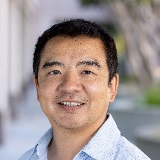
Xinxin Gao received his PhD in Chemistry from University of Miami in 2006. After postdoctoral training at Johns Hopkins University, he joined Genentech in 2010. He is a Principal Scientific Manager at the Peptide Therapeutics division in Genentech, and manages the Disulfide Constrained Peptide (DCP) platform.
Amanda Garner, PhD, Associate Professor, College of Pharmacy, Department of Medicinal Chemistry, University of Michigan

Amanda L. Garner is a tenured Associate Professor in the Department of Medicinal Chemistry at the University of Michigan. She received her Ph.D. in Chemistry in 2008 from the University of Pittsburgh working under the supervision of Professor Kazunori Koide in the areas of fluorescent chemosensors and solid-phase organic synthesis. She completed NIH-funded postdoctoral studies in the laboratory of Professor Kim Janda at The Scripps Research Institute in La Jolla, California working in the area of chemical biology. Dr. Garner’s independent research integrates chemical biology, medicinal chemistry and molecular and cellular biology approaches for studying disease-relevant processes in RNA biology, in particular cap-dependent mRNA translation and microRNA-mediated gene regulation.
Thomas P. Garner, PhD, Principal Scientist, Biophysics, Genentech, Inc.
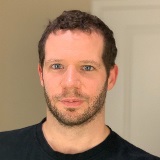
Thomas Garner joined Genentech in 2020. He is a Principal Scientist in the Biochemical and Cellular Pharmacology (BCP) department. Thomas is the BCP and biophysics representative on several key pipeline projects at Genentech, developing SPR and other biophysics assays to facilitate hit finding and hit-to-lead development at Genentech. Thomas earned his MSci. in Biochemistry and Biological Chemistry at the University of Nottingham in the United Kingdom. Thomas continued his studies at the University of Nottingham to earn a PhD in the Biological Chemistry Department, with a focus on NMR-based structural biology and biophysics of protein-protein and DNA-drug interactions. In 2010, he moved to the United States as a postdoctoral fellow at Louisiana State University. In 2012, he joined the Gavathiotis lab at the Albert Einstein College of Medicine (AECOM). While at AECOM, he studied the regulation and inhibition of Bcl-2 family proteins and became faculty in 2017.
Ashwini Ghogare, PhD, Executive Director, Head of AI and Automation for Drug Discovery, MilliporeSigma
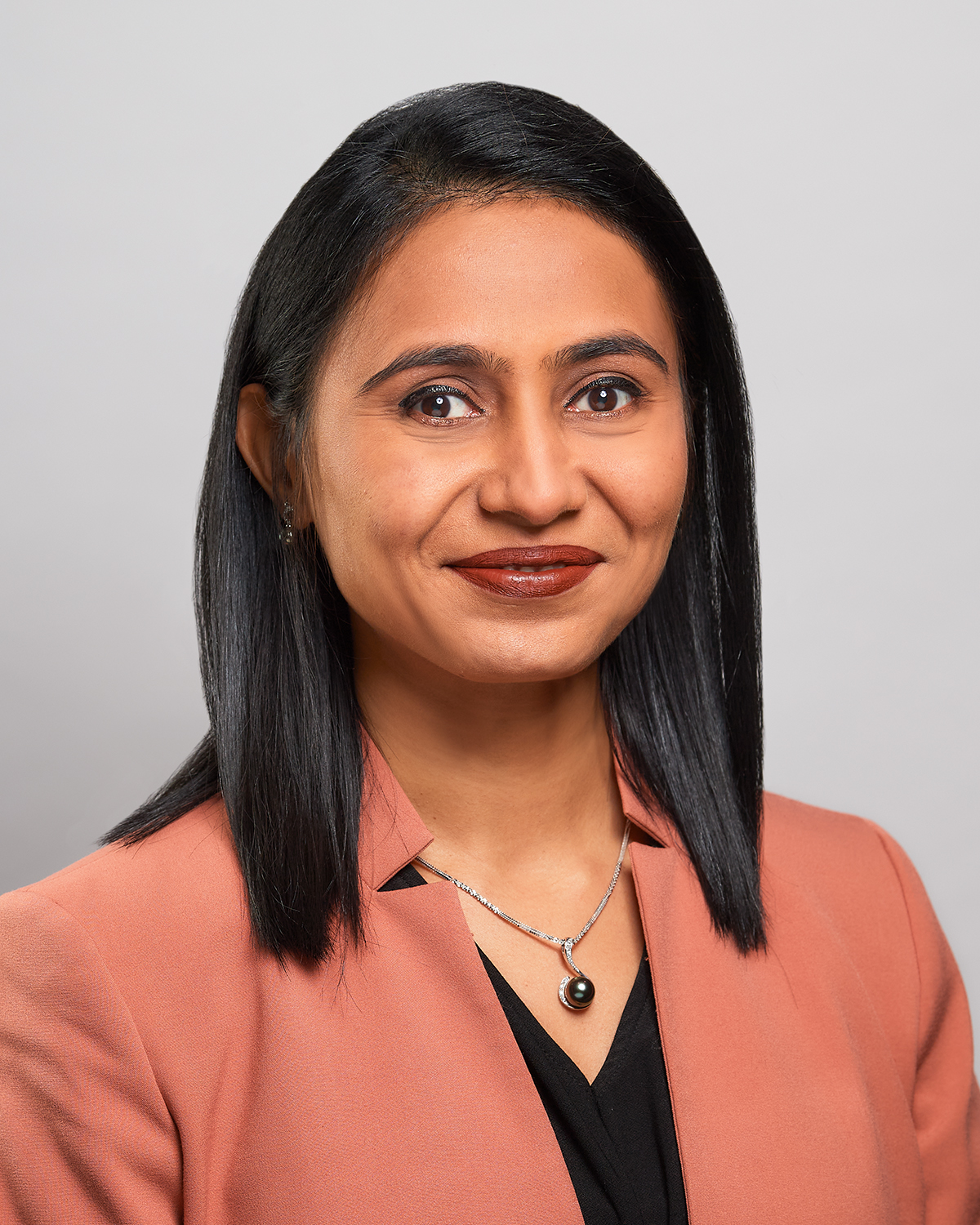
Ashwini Ghogare is the Head of AI and Automation for Drug Discover at Merck KGaA, Darmstadt, Germany, responsible for setting up the AI-powered drug discovery and automation portfolio as an intrapreneurial venture across Life Science & Healthcare. Ashwini is a leader in transformational drug discovery technologies with extensive experience in software development, new business incubation and software product sales. She has a Ph.D. in organic chemistry in photobiology focused on the photochemical drug delivery system.
Adrian L. Gill, PhD, Senior Vice President, Medicinal Chemistry, Revolution Medicines

Adrian has been involved in drug discovery activities for over 25 years and has held senior roles at Roche, Astex Therapeutics, AstraZeneca and currently Revolution Medicines where he is SVP, Discovery Chemistry. Adrian has helped develop many innovative approaches to small molecule drug discovery including fragment-based discovery, chemically induced proximity and novel covalent drug discovery approaches. Over the course of his career, he has co-authored and published over 50 peer reviewed papers and patents, and delivered multiple development candidates for clinical investigation across multiple disease areas including oncology.
Gal Gur, PhD, VP, Business Development, Anima Biotech

Dr. Gal Gur has over 15 years of experience in biotech companies, spanning roles in both R&D and Business Development. She served as the Director of Business Development at T3, the Technion Technology Transfer. There, she managed a wide range of biotech, biomed, and pharma licensing projects. Her responsibilities also encompassed the establishment of spinoffs, commercialization activities, and the due diligence and development of companies and technologies. Before her tenure at T3, Dr. Gur held leadership roles in the R&D departments of major global companies, including Sigma-Aldrich and subsequently Merck KGaA. At Merck KGaA, she led the Innovative Technologies department, focusing on scouting and evaluating Life Science technologies, and establishing collaborations. Gal earned her PhD from Tel Aviv University and completed her postdoctoral fellowship at the Weizmann Institute.
Thomas Hermann, PhD, Professor, Department of Chemistry & Biochemistry, University of California, San Diego

Thomas Hermann is a professor in the Department of Chemistry and Biochemistry at the University of California San Diego. Prior, he led structure-guided discovery for anti-infective drugs at a biotech company. His research is guided by RNA structure as prologue to function and targeting. Thomas is a co-founder and scientific advisor of companies in the RNA targeting area.
Chad Hewitt, PhD, Scientist I, DNA Encoded Chemical Library Screening, Nurix Therapeutics, Inc.

Chad Hewitt is a scientist at Nurix Therapeutics and works in the DEL and Protein Sciences group where he specializes in DEL Screening. Prior to joining Nurix, Dr. Hewitt received his PhD from Purdue University in Medicinal Chemistry and Molecular Pharmacology. While at Purdue, he contributed to a number of projects including the development of bacterial carbonic anhydrase inhibitors and the generation of ubiquitin variants selective for the UCH subfamily of deubiquitinating enzymes.
Keith Hornberger, PhD, Senior Director, Chemistry, Arvinas Inc.

Keith Hornberger is Senior Director of Chemistry at Arvinas, Inc., where he leads the medicinal chemistry team supporting the discovery of PROTAC targeted protein degraders for oncology. Prior to joining Arvinas in 2016, Keith previously held multiple positions in preclinical drug discovery at GlaxoSmithKline, OSI Pharmaceuticals (a subsidiary of Astellas), and Boehringer Ingelheim. Keith completed his Ph.D. in organic chemistry at Columbia University in 2002.
Benjamin Horning, PhD, Scientist, Vividion Therapeutics

Benjamin Horning was born in Portland, Oregon, and lived there until he departed for graduate studies with David MacMillan at Princeton University. After graduating, he departed for San Diego, California and did postdoctoral studies in the lab of Benjamin Cravatt. There he became fascinated by chemoproteomic screening of fragment electrophiles in native cellular environments, so he continued in that line of research and joined Vividion Therapeutics where he is now a Senior Scientist in the Early Discovery group.
Ollie Hsia, PhD, Postdoctoral Research Assistant, Laboratory of Dr. Alessio Cuilli, Center for Targeted Protein Degradation, University of Dundee

Oliver obtained his PhD from the University of Glasgow under the supervision of Dr. Thimo Kurz, characterizing the role of the NEDD8 E3 ligase DCNL5 in the apoptosis pathway. Continuing his research in the protein homeostasis field, Oliver moved to the Centre for Targeted Protein Degradation (CeTPD) at the University of Dundee in May of 2020, to begin working as a postdoctoral cell biologist on the collaborative project between the Ciulli group and Eisai Co., Ltd., screening, developing, and validating new molecular glues and PROTACs. Oliver co-led the collaboration with Georg Winter's lab where the concept of Intramolecular Bivalent Glues (IBGs) were first introduced.
Laura J Hsieh, PhD, CEO & Founder, TippingPoint Biosciences

Dr. Laura Hsieh, co-founder and CEO of TippingPoint, is a former UCSF postdoc in Geeta Narlikar’s lab. She has authored multiple first author publications and is the recipient of the prestigious American Cancer Society postdoctoral fellowship. During the course of her career, Dr. Hsieh has directed several team projects and invented the technology platform at UCSF. Since spinning out of UCSF under Dr. Hsieh's leadership, TippingPoint Biosciences participated and graduated the most recent IndieBio cohort, won the Platinum Ticket pitch competition from Mission BioCapital, won 2 golden ticket pitch competitions sponsored by Pharma companies, and successfully closed on $1M of pre-seed financing.
Ken Hsu, PhD, Stephen F. and Fay Evans Martin Endowed Associate Professor, Department of Chemistry, The University of Texas at Austin
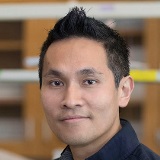
Prof. Hsu earned his PhD in Chemistry and Biochemistry from The University of Texas at Austin and completed his postdoctoral training at The Scripps Research Institute. The Hsu Laboratory focuses on the discovery of bioactive molecules. A central theme of the group is the development of covalent probes and inhibitors for investigating protein and lipid activity. Research in the group is multidisciplinary and uses a combination of organic synthesis, bioanalytical chemistry, and bioorganic chemistry. Current efforts include identifying new reactive chemistry, quantifying ligandability of proteins on a proteomic scale, and deciphering structure and function of membrane signals in living systems. Ultimately, the goal is to develop new molecules to enable chemical biology and therapeutic discovery. Prof. Hsu’s research program has been recognized by several awards including the highly competitive NIH K99/R00 Pathway to Independence Award, Department of Defense CDMRP Career Development Award, Melanoma Research Alliance Young Investigator Award, the NSF CAREER Award, the Emerging Leader Award from The Mark Foundation for Cancer Research, and CPRIT Recruitment of Rising Stars Award.
Karthik Iyer, PhD, Associate Director, Chemical Sciences, Arrakis Therapeutics

I received my Ph.D. in Organic Chemistry from the University of Utah, followed by postdoctoral work with Prof. Sam Danishefsky at Memorial Sloan-Kettering Cancer Center, where I worked on multiple projects including the chemical total synthesis of Erythropoietin. I then joined Ironwood Pharmaceuticals and was involved in various programs targeting cardiovascular, metabolic, CNS, and pulmonary diseases that resulted in the invention of three clinical candidates, praliciguat, olinciguat and CY6463. Currently, I am an Associate Director, Chemical Sciences at Arrakis Therapeuctics and co-lead an oncology program targeting the mRNA of a transcription factor.
Sang Eun Jee, Dr., Application Scientist, XtalPi Inc

Sang Eun Jee is an application scientist in the business development department and is responsible for Computer Aided Drug Discovery (CADD) at the preclinical stage. Her expertise is in predicting drug-protein interaction, structural changes of proteins, and virtual screening. She received her Ph. D. in chemical & biomolecular engineering school at Georgia Tech and completed two postdoctoral training at Georgia Tech and Washington University in Saint Louis.
Brandon D. Jeffy, PhD, DABT - Director, Drug Safety Research & Evaluation, Takeda San Diego

Brandon Jeffy, Ph.D., DABT (Director, Drug Safety Research and Evaluation, Takeda Pharmaceuticals) has been co-leading the Nonclinical Toxicology department at the San Diego site since joining Takeda in 2017, and has been working in pharmaceutical toxicology for nearly 20 years. Prior to joining Takeda, Brandon worked in nonclinical drug safety departments at companies including AstraZeneca, Celgene, and Vertex, providing increasing levels of toxicology support to discovery and development programs across multiple therapeutic areas and modalities. Since joining Celgene in 2010 and then at subsequent companies, Dr. Jeffy has been developing preclinical safety paradigms for protein degrader drugs - first with molecular glue immunomodulatory drugs (IMiDs) and more recently with PROTACs and other related degrader variants. Brandon received his Ph.D. in Cancer Biology/Toxicology from the University of Arizona and completed a postdoctoral fellowship in Investigative Toxicology at Pfizer La Jolla, and has been certified as a Diplomate of the American Board of Toxicology (DABT) since 2011. Brandon is currently serving as Past President of the Drug Discovery Toxicology specialty section of Society of Toxicology, is Past President of the Southern California Chapter of Society of Toxicology and is co-editor of the first book on the topic of Drug Discovery Toxicology.
Rachael Jetson, PhD, Senior Director, Lead Discovery, Valo Health

Rachael Jetson is the Senior Director of Lead Discovery at Valo Health. Valo is a technology company that uses human-centric data and artificial intelligence to enable more rapid, lower-risk drug discovery. Rachael’s role at Valo is to oversee protein sciences, in vitro pharmacology, and DEL in order to support drug discovery programs from hit identification to lead optimization. Rachael has ten years of DEL experience encompassing numerous methods for library generation and selection. Rachael is continually working on growing capabilities within the DEL field using the Valo platform.
Chang Hoon Ji, PhD, Executive Director, Bio R&D Center, AUTOTAC Bio, Inc.

Dr. Ji is an Executive Director of Bio R&D Center at AUTOTAC Bio and a Research Associate Professor at the Department of Biomedical Sciences, Seoul National University. His globally-recognized work in both academia and industry encompasses not only basic science research/discovery in the protein degradation space with a specific focus on the N-degron pathway, but also translational/clinical development of small-molecule chemical ligands and heterobifunctional chimeric degrader platform for targeted protein degradation and modulation for development of disease-modifying therapeutics. His experience on both sides of the aisle have contributed to the founding of two protein degradation-modulating bio-startup companies.
Diane M. Joseph-McCarthy, PhD, Professor of the Practice, Biomedical Engineering, Boston University

Diane Joseph-McCarthy is the Executive Director of the Bioengineering Technology & Entrepreneurship Center and Professor of the Practice in Biomedical Engineering at Boston University. Prior to that, she was a life science executive with over 20 years of drug discovery, development, and leadership experience. She was SVP of Discovery & Early Development at EnBiotix, a bioengineering company focused on respiratory and rare disease. She was an Associate Director at AstraZeneca, where she led a global team in infectious disease. At Wyeth, she held positions of increasing responsibility. Diane received her PhD from MIT and was a postdoctoral fellow at Harvard University/Harvard Medical School. She is a fellow of the American Institute for Medical and Biological Engineering.
Md Shamiul Kabir, PhD, Postdoctoral Fellow, Laboratory of Dr. Jian Jin, Department of Pharmacological and Oncological Sciences, Icahn School of Medicine at Mount Sinai

As a first generation Bengali-American, Md Kabir graduated Magna Cum Laude with a B.S. in Biochemistry from the City College of New York in 2016. Afterwards, Md did a post-baccalaureate research fellowship at the National Institutes of Health (NIH) for almost 3 years. Md was part of Dr. Xin Xu’s Drug Metabolism and Pharmacokinetics (DMPK) core group at the National Center for Advancing Translational Sciences (NCATS/NIH). Md performed assays critical for the pre-clinical candidate development and performed investigational new drug (IND) enabling studies. From 2019-2023, Md attended the Icahn School of Medicine at Mount Sinai (ISSMS) and graduated with a PhD in Biomedical Sciences in the Pharmacology and Therapeutics Discovery (PTD) track under the tutelage of Dr. Jian Jin. During his PhD, Md led and published several high-profile Proteolysis Targeting Chimeras (PROTAC) degraders for oncogenic proteins. Currently, Md is doing his postdoctoral fellowship at ISSMS under Dr. Jian Jin where he is advancing several bifunctional modalities for the treatment of cancer and other diseases.
Petrina Kamya, PhD, Head of AI Platforms and President, Insilico Medicine, Canada

Petrina Kamya, PhD, is the Head of AI Platforms and President of Insilico Medicine, Canada an end-to-end artificial intelligence-driven drug discovery company. Before joining Insilico, Dr. Kamya spent eight years in various roles at Chemical Computing Group that involved scientific and business-related aspects of preclinical drug discovery. In addition to establishing the corporate strategy for the sales and business development of molecular modeling software for academia, she also played an active role as an application scientist working on real-world discovery projects and finally in a senior role in strategy and business development for pharma and biotech companies. Following her time at CCG, Petrina moved to Certara as a Market Access Manager, where she learned first-hand the challenges of getting drugs to market. Petrina has been with Insilico Medicine since August 2020. She holds a PhD in Chemistry (specializing in computational chemistry) from Concordia University.
Jamie Kasuboski, PhD, Vice President, OMX Ventures

Jamie is a Vice President with OMX Ventures. Prior to OMX Jamie developed deep experience in early-stage biotech investing and company creation while working on the investment team at RA Capital. In that role he served on the board of Enara Bio, Avilar Therapeutics, and Hyku Therapeutics. Before joining RA, he was a Director at Boehringer Ingelheim Venture Fund and served as a Board Director of both Tilos Therapeutics (acquired by Merck & Co.) and Rewind Therapeutics.
Vsevolod "Seva" Katritch, PhD, Professor, Quantitative and Computational Biology and Chemistry, University of Southern California
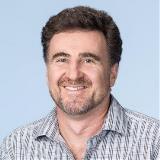
Dr. Vsevolod “Seva” Katritch is a computational biologist and computational chemist focused on deciphering the molecular function of membrane proteins, specifically the superfamily of G protein-coupled receptors (GPCRs). Dr. Katritch received his Ph.D. from Moscow Institute of Physics and Technology, followed by postdoctoral training at Rutgers University and The Scripps Research Institute. Before joining USC in 2015, he served as a director at SIGA Technologies and held research faculty positions at the University of California, San Diego, and The Scripps Research Institute. His work has led to eight patents and more than 140 publications, including ligand-discovery studies and high-impact reviews on GPCR structure/function and computational approaches to drug discovery.
Terrence P. Kenakin, PhD, Professor, Pharmacology, University of North Carolina at Chapel Hill

Beginning his career as a synthetic chemist, Terry Kenakin received a PhD in Pharmacology at the University of Alberta in Canada. After a postdoctoral fellowship at University College London, UK, he joined Burroughs-Wellcome as an associate scientist for 7 years. From there, he continued working in drug discovery for 25 years first at Glaxo, Inc., then Glaxo Wellcome, and finally as a Director at GlaxoSmithKline Research and Development laboratories at Research Triangle Park, North Carolina, USA. Dr. Kenakin is now a professor in the Department of Pharmacology, University of North Carolina School of Medicine, Chapel Hill. Currently he is engaged in studies aimed at the optimal design of drug activity assays systems, the discovery and testing of allosteric molecules for therapeutic application, and the quantitative modeling of drug effects. In addition, he is Director of the Pharmacology graduate courses at the UNC School of Medicine. He is a member of numerous editorial boards, as well as Editor-in-Chief of the “Journal of Receptors and Signal Transduction.” He has authored numerous articles and has written 10 books on pharmacology.
Gyorgy Keseru, PhD, Professor, Medicinal Chemistry, Research Centre for Natural Sciences (RCNS), Hungary
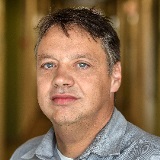
Gyorgy M. Keseru obtained his Ph.D. at Budapest, Hungary and joined Sanofi heading a chemistry research lab. He moved to Gedeon Richter in 1999 and he was appointed as the Head of Discovery Chemistry in 2007. He contributed to the discovery of the antipsychotic Vraylar® (cariprazine) that has been approved and marketed from 2016 in US and EU. He served as a director general of the Research Centre for Natural Sciences at the Hungarian Academy of Sciences. From 2015 he is heading the Medicinal Chemistry Research Group. Gyorgy published over 250 papers and he is a co-inventor in 21 patents. He was awarded by the prestigious Overton and Meyer Award of the European Federation of Medicinal Chemistry and has been elected as Corresponding member of the Hungarian Academy of Sciences.
Rabia Khan, PhD, MBA, CEO, Serna Bio

Rabia Khan, Ph.D., MBA, is the founder and CEO of Serna Bio. Trained in immunology and genetics, Dr. Khan was previously an executive at Sensyne Health. As Managing Director of Discovery Sciences, she established the scientific strategy, built the data science and discovery teams of over 50 in machine learning and clinical research, and transacted partnerships with Bayer, BMS, Roche, Alexion, and others. Dr. Khan has also held senior roles at BenevolentAI and Meta (acquired by Chan Zuckerberg BioHub). Born in Pakistan, educated in Canada, and has led multinational teams spanning the UK, Canada, and the US, Dr. Khan is passionate about diversity in science. She was named one of 50 Movers and Shakers in BioBusiness and 30 Rising Leaders in Biotech 2020.
Casey J. Krusemark, PhD, Associate Professor, Medicinal Chemistry & Molecular Pharmacology, Purdue University
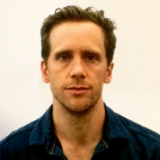
Casey obtained his Ph. D. in Biochemistry at the University of Wisconsin-Madison in the area of chemical biology, with an emphasis on new chemical tools for mass spectrometry-based proteomic analysis. He then conducted postdoctoral training at Stanford University working on the directed evolution of synthetic molecules using DNA programmed synthesis. He began his independent career in 2013 at Purdue University in the Department of Medicinal Chemistry and Molecular Pharmacology. His group works on applications of DNA-encoded libraries with a focus on novel selection approaches for expanding DEL target scope and the use of DNA-encoded molecules as proteomic activity probes.
Aditya Kulkarni, PhD, Founder & CSO, Avammune Therapeutics, Inc.

Aditya is the Founder and CSO at Avammune Therapeutics. He previously co-founded Aten Porus Lifesciences and Oraxion Therapeutics, R&D companies focused on drug discovery. He has co-authored several papers and filed several international patents in the areas of bioorganic and medicinal chemistry, nucleic acid delivery and drug discovery. He has been a recipient of scholarships during his Master's and PhD and was also awarded the H. C. Brown Award for Outstanding Organic Research at Purdue University. Aditya has a PhD in Bioorganic Chemistry from Purdue University (USA), MS in Chemical Biology from Leeds University (UK), and B.Sc in Chemistry from Christ University (India).
Ramesh Kumar, PhD, Principal Investigator & Scientist, Institute of Molecular and Cell Biology, Agency for Science, Technology and Research (A*STAR)

Dr. Ramesh Kumar received his PhD from Centre for Chromosome Biology, National University of Ireland. During his first post-doctoral career at the Leiden University Medical Centre, he worked extensively to understand the role of SUMO-Targeted Ubiquitin Ligases (STUbL) in the regulation of DNA Repair and Carcinogenesis. During his next post-doctoral research at the IFOM Milan and DUKE-NUS Medical School, Singapore, he has worked on various research topics to understand the molecular and biochemical basis of carcinogenesis and small molecule drug development. He has also worked for Johnson & Johnson, USA in the area of oncology targets. At present, Ramesh is working as a scientist and CDF Principal Investigator at Institute of Molecular and Cell Biology (IMCB), A-STAR Institute, Singapore. His research is focused to understand the role of Hippo signaling in cancer. He is leading a small molecule drug discovery and identifying novel targets for drugging Hippo signaling in various indications, and development of drug resistance.
Katerina Leftheris, PhD, Chief Scientific Officer, Vilya Therapeutics

Dr. Leftheris is currently the CSO of Vilya Therapeutics, a company focused on using ML/neural networks to identify cell permeable macrocycles as orally bioavailable drugs. Prior, she was Vice President of Chemistry at Pliant Therapeutics, where she built and led the Discovery Chemistry, computational chemistry, integrin library, and structural biology efforts leading to multiple compounds advancing into the clinic for the treatment of IPF, Primary Sclerosing Cholangitis (PSC) (Bexotegrast), NASH, and I/O disease. Prior, she was site-head of Discovery Chemistry for Celgene overseeing the kinase and E3 Ligase ligand-directed degradation efforts. She spent the early part of her career at BMS in both the Oncology and Immunology Discovery Chemistry divisions. To date, she and her teams have advanced 15 compounds into the clinic, many from program inception. She has over 135 publications and issued patents.
Zsofia Lengyel-Zhand, PhD, Pfizer Inc.
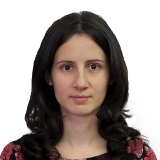
Zsofia Lengyel-Zhand obtained her PhD in Biochemistry from Syracuse University before joining the Perelman School of Medicine at the University of Pennsylvania for a postdoctoral fellowship. Her work focused on screening and characterizing small molecule compounds to facilitate the discovery and preclinical development of novel imagining agents for neurodegenerative diseases. She joined the Primary Pharmacology group at Pfizer as a Senior Scientist two years ago, where she supports Pfizer’s DNA-Encoded Library Technology, and the in vitro pharmacology needs of the Anti-Infective portfolio.
Donny Licatalosi, PhD, Head, RNA Biology, Takeda Pharmaceutical Company

Donny Licatalosi is the Head of RNA Biology at Takeda Pharmaceuticals San Diego. Prior to joining Takeda in 2022, he was an Associate Professor in the Center for RNA Science and Therapeutics and the Department of Biochemistry at Case Western Reserve University. Donny completed his PhD research in 2004 at the University of Colorado, studying how mRNA processing is coupled to transcription. During postdoctoral research in Robert Darnell’s lab at Rockefeller University, he led the development and application of CLIP and RNA profiling tools to identify the roles of select RNA binding proteins in tissue-specific mRNA regulation. As an independent investigator, Donny’s lab developed high resolution biochemical and genetic tools to study RNA binding proteins and mRNA regulatory programs in diverse cell biological contexts. At Takeda, Donny leads the RNA Modulation team within Drug Discovery Sciences.
Michael Liebman, PhD, Managing Director, IPQ Analytics, LLC

Michael N. Liebman, PhD (theoretical chemistry and protein crystallography) is Managing Director of IPQ Analytics, LLC and CSO of United Cancer Centers after serving as Executive Director of the Chan Soon-Shiong Institute for Molecular Medicine. He is Adjunct Professor of Pharmacology and Physiology, Drexel College of Medicine and Adjunct Professor of Drug Discovery, Wenzhou Medical University and Fudan University. He serves on the Advisory Board for the Center of Biomedical and Health Research, University of Massachusetts (Lowell). Previously, he was Director, Computational Biology and Biomedical Informatics, University of Pennsylvania Cancer Center. He served as Global Head of Computational Genomics, Roche. He serves on the Board of the Nathaniel Adamczyk Foundation in Pediatric ARDS. Michael chairs Translational Medicine for the PhRMA Foundation and serves on the IUPAC Division on Human Health. His research focuses on computational models of disease that stress complexities of real-world patients and real-world clinical practice utilizing systems-based approaches for representation and analysis for pharma and healthcare.
Yu-Shan Lin, PhD, Associate Professor, Chemistry, Tufts University

Yu-Shan Lin obtained her PhD in Chemistry from University of Wisconsin, Madison, in 2009, and she was a postdoctoral fellow at Stanford from 2009 to 2012. In 2012, Yu-Shan established her research group at Tufts University, where she received tenure in 2018. Yu-Shan’s current research endeavors focus on using molecular dynamics simulation and machine learning to understand and design structures and properties of peptides, in particular cyclic and other restrained peptides. Yu-Shan recently received the Machine Learning in the Chemical Sciences & Engineering Award from the Camille and Henry Dreyfus Foundation (2020), the Rising Innovator Award from Tufts University (2023), and the Annual Women Leadership Award from the Rotary Club of Cambridge Massachusetts (2023).
Kenneth E. Lind, PhD, Senior Director, Informatics & Computational Chemistry, 1859 Inc.

Ken Lind, Senior Director of Informatics and Computational Chemistry, contributes extensive expertise in DNA-encoded library (DEL) informatics plus a deep knowledge of computational and medicinal chemistry to advance 1859’s platform and pipeline. His background in cheminformatics and computational chemistry was instrumental in creating and progressing the DEL platform at GlaxoSmithKline. Ken started his career at Sunesis Pharmaceuticals working on fragment-based drug discovery, followed by 15 years at GSK (formerly Praecis Pharmaceuticals). He most recently built and led the computational chemistry team at Exo Therapeutics. Ken holds a BS in Pharmacy, and PhD in Medicinal Chemistry (University of Minnesota).
Andreas Lingel, PhD, Associate Director, Global Discovery Chemistry, Novartis Institutes for Biomedical Research

2006 PhD EMBL Heidelberg and ETH Zurich; 2006-2010 Postdoctoral Fellow at Genentech; Since 2010 Novartis Institutes for BioMedical Research; 2010-2016 Emeryville, CA; Since 2016 Basel, Switzerland
Shuang Liu, PhD, Senior Scientist, Institute of Molecular & Cell Biology, A*STAR; former Postdoctoral Associate, Lab of Dr. Stuart Schreiber, Broad Institute of MIT and Harvard

Shuang Liu is a senior scientist at the Institute of Molecular and Cell Biology, A*STAR, Singapore. She pursued her undergraduate studies in Chemistry with Medicinal Chemistry at Imperial College London with full funding from A*STAR’s National Science Scholarship (BS). She then spent a year at A*STAR's Experimental Therapeutics Centre in Singapore and identified several exploratory and lead-stage therapeutic compounds using fragment-based screening. She obtained her DPhil in Chemical Biology at the University of Oxford under the guidance of Prof. Christopher Schofield, funded by the National Science Scholarship (PhD), focusing on mechanistic and inhibition studies on oncogenic variants of Isocitrate Dehydrogenase 1. Subsequently, Shuang moved from the UK to the US for her postdoctoral training in the laboratory of Prof. Stuart Schreiber at the Broad Institute of MIT and Harvard/Harvard University, where she harnessed the power of DNA-encoded library screening to discover binders and molecular glues for oncogenic targets.
Nir London, PhD, Senior Scientist, Organic Chemistry, Weizmann Institute of Science
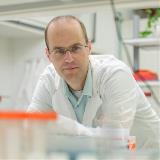
Dr. Nir London received his PhD from the Hebrew University in 2011. He joined the Department of Pharmaceutical Chemistry at the University of California, San Francisco, as an EMBO post-doc fellow starting in 2012, and joined the Weizmann Institute as a senior scientist in 2015. Dr. London's lab is focused on covalent chemical biology and drug discovery and has developed several technologies for the design of covalent inhibitors. His honors include the Chorev Award by the Israeli Chemical Society, the Dimitris N. Chorafas Foundation Award, a postdoctoral award from the Program for Breakthrough Biomedical Research. Most recently he also received the Alon fellowship, an award of excellence from the Israel Cancer Association and the Breast Cancer Research Foundation - AACR Career Development Award for Translational Breast Cancer Research. Recently Dr. London was selected for the IUPAC periodic table of young chemists.
Artur Mailyan, PhD, Principal Investigator, Chemistry, Arcus Biosciences

Artur Mailyan is currently a Principal Investigator in the Discovery Chemistry department of Arcus Biosciences where his research is focused on immuno-oncology and inflammation targets. Artur is a synthetic organic chemist by training. Prior to joining the medicinal chemistry team of Arcus Biosciences, he received a PhD degree from Russian Academy of Sciences and performed post-doctoral research with Professor Armen Zakarian at University of California Santa Barbara focusing on total synthesis of complex natural products and methodology development.
Fred Manby, DPhil, Co-Founder & CTO, Iambic Therapeutics

Iambic Co-Founder and CTO Fred Manby has over 30 years of experience in developing technologies for understanding and discovering molecules. Much of his academic career was spent as a professor in chemistry at the University of Bristol in the UK, and his research resulted in over 200 publications and numerous awards. In 2019, he co-founded Iambic (at that time called Entos) with the mission of combining AI technologies and automation to revolutionize small-molecule drug discovery.
Mihir Mandal, PhD, Principal Scientist, Medicinal Chemistry, Merck

Mihir Mandal, PhD, is a passionate and accomplished drug hunter with a strong record for solving complex medicinal chemistry puzzles. He currently leads multiple FBLD projects with novel mechanisms of action. He is a core team member of the FBLD department at Merck and is responsible for devising and implementing strategies for rapid progress of the hits in the FBLD portfolio. Prior to his current role, he was involved in lead identification and optimization that led to multiple clinical candidates. During his industrial career that started at Schering Plough and continued at Merck upon merger, he impacted all the projects spanning from CNS, CVD, antibacterial, and antiviral utilizing structure-based drug design, in silico design and high-throughput experimentation. Mihir earned his PhD in synthetic organic and fluorine chemistry from University of Southern California with Professor Surya Prakash and George Olah and was an US Army post-doctoral fellow at Memorial Sloan Kettering Cancer Center with Professor Sam Danishefsky. He received his MSc. in chemistry from Indian Institute of Technology. He is an inventor on 28 issued US patents and a co-author of more than 31 publications.
Brent Martin, PhD, Vice President, Chemical Biology, Scorpion Therapeutics
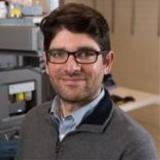
Brent Martin received his Ph.D. in Pharmacology at the University of California in San Diego developing new chemical strategies for correlated fluorescence and electron microscopy. He then carried out postdoctoral studies at the Scripps Research Institute developing new strategies for activity-based profiling, high-throughput screening, and chemical proteomics. As faculty member at the University of Michigan in Ann Arbor, he continued expanding the scope of activity-based profiling methods, while also establishing new bioconjugation reactions to detect and profile protein lipidation, redox modifications, and cysteine occupancy. Brent is the recipient of the NCI Howard Temin K99/R00 award in Cancer Research, the NIH Director’s New Innovator Award, and the NIGMS MIRA Established Investigator Award. He then moved to industry to lead the Chemical Biology at Janssen and is currently Vice President and Head of Chemical Biology at Scorpion Therapeutics.
Matthew A. Marx, PhD, Senior Vice President, Drug Discovery, Mirati Therapeutics, Inc.
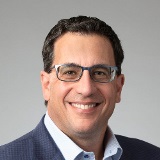
Matt is the head of Drug Discovery at Mirati Therapeutics, responsible for preclinical advancement of their KRAS portfolio as well as several other targeted cancer therapies. Prior to Mirati, Matt was the head of chemistry at Takeda California, with earlier roles at Pfizer, where he started his career and became head of the oncology chemistry group in their Groton, CT site.
Shyam Masrani, Principal, Medicxi

Shyam is a Principal at Medicxi. Prior to joining Medicxi, Shyam founded two early-stage biotechnology companies (Shyden Biotechnology and Cleavr Therapeutics). He led Medicxi's investment in Merus and currently serves on the boards of a number of portfolio companies, including T-Cypher Bio, My-T Bio, and CosMyc Therapeutics. Shyam obtained a BSc in Biochemistry and a Masters in Translational Medicine from Imperial College London.
Mary Matyskiela, PhD, Vice President, Molecular Sciences, Neomorph, Inc.

Mary Matyskiela, Ph.D. is Vice President of Molecular Sciences at Neomorph, Inc. Mary received her B.S. in Chemistry from Yale University, where she performed undergraduate research in the lab of Dr. Craig Crews. She then moved to the University of California San Francisco for graduate work on ubiquitin ligase mechanism in the lab of Dr. David Morgan, and went on to perform postdoctoral research at the University of California Berkeley, studying the structure and function of the 26S proteasome with Dr. Andreas Martin, HHMI. Most recently, Mary served as Associate Director of Structural Biology and Proteomics at Bristol Myers Squibb. Prior to that, Mary spent 6 years at Celgene working to elucidate the molecular mechanisms of thalidomide analogs and expand the horizons of molecular glue targeting through cereblon-CRL4.
Ralph Mazitschek, PhD, Assistant Professor, Harvard Medical School; Co-Director of the Chemical Biology Platform, Center for Systems Biology, Massachusetts General Hospital

Dr. Mazitschek is an Assistant Professor at Harvard Medical School and Co-Director of the Chemical Biology Platform at the Center for Systems Biology at Massachusetts General Hospital (MGH). Dr. Mazitschek is also Assistant Professor in the Department of Immunology and Infectious Diseases at the Harvard T.H. Chan School of Public Health, and Associate Member of The Broad Institute of Harvard and MIT.Dr. Mazitschek graduated from the University of Leipzig in 2002 with a PhD in Organic Chemistry. He continued his research at the Institute of Chemistry and Cell Biology (ICCB) at Harvard Medical School first as postdoc and later as Institute Fellow, from which he joined the Chemical Biology Program at the newly founded Broad Institute of Harvard and MIT. In 2008 he joined the faculty of the Center for Systems Biology at the Massachusetts General Hospital to continue his independent research.
Kelly McCarthy, PhD, Principal Scientist, Lead Discovery, Valo Health

Kelly McCarthy is a Principal Scientist at Valo Health, leading the DNA-Encoded Library selections team. Kelly has over 8 years of experience in encoded library technology screening through both DEL and phage display. She has screened over 70 protein constructs spanning a broad range of target classes using DEL. Prior to starting her DEL career at FORMA Therapeutics in 2018, Kelly received her PhD in Chemical Biology from Boston College.
Jeff A. Messer, Director, Analytics, Encoded Libraries Technology, GlaxoSmithKline
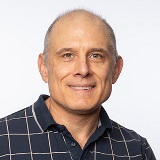
MS of Biochemistry from the University of New Hampshire. 20+ years with a foot in the lab and a foot on the carpet doing computation work in support of HTS, Biomarkers and encoded libraries. Currently at GSK in Cambridge, MA where he leads the Biophysics and Analytics groups in support of GSK’s Encoded Library Technology.
Olivier Mirguet, PhD, Integrated Drug Discovery MedChem Scientific Director, Eurofins
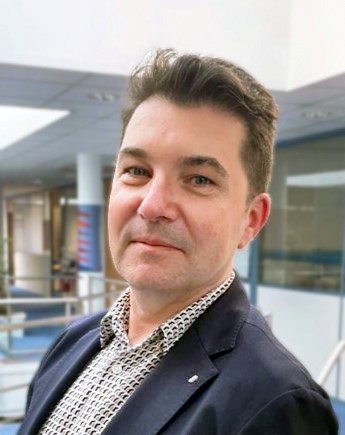
Olivier Mirguet , Ph.D., Integrated Drug Discovery Scientific Director of DiscoveryOne™, brings over 20 years of industry experience, including working on multiple target classes and therapeutic areas within both the pharma industry and CROs. Previous roles include Project Lead for IDD programs in Oncology, Epigenetics, Rare Diseases and Cardiometabolic Diseases. Dr. Mirguet is co-author on over 45 publications and patents and contributed to the development of three clinical Phase compounds.
Henrik Moebitz, PhD, Investigator III, Oncology & Exploratory Chemistry, Novartis Institutes for Biomedical Research

After a PhD in biochemistry at the University of Freiburg and a Postdoc using molecular mechanics to understand enzymatic catalysis at UC Santa Barbara, I joined the Novartis CADD group in Basel in 2005. Meanwhile, I co-lead the Basel CADD group and lead medicinal chemistry projects. My project work has exposed me to novel and challenging targets, hence my interest in navigating bRo5 chemical space with physics-based computation. Author of over 50 publications and patents, with the last decade of my work yet to be published.
Raymond Moellering, PhD, Associate Professor, Department of Chemistry, University of Chicago

Dr. Moellering is an Associate Professor of Chemistry at the University of Chicago. He obtained Bachelor’s degrees in Chemistry and Biochemistry & Molecular Biophysics from the University of Arizona. He then earned a PhD in Chemistry at Harvard University as an American Association for Cancer Research Centennial Fellow, followed by postdoctoral training as a Damon Runyon Postdoctoral Fellow at The Scripps Research Institute. Dr. Moellering started his independent research program at UChicago in 2015, where his laboratory is focused on developing novel chemical probes, proteomic technologies, and therapeutic platforms to expose and exploit novel signaling mechanisms in diseases like cancer, diabetes, and chronic inflammatory conditions. Dr. Moellering’s independent program has garnered recognition with awards that include the Damon Runyon Dale F. Frey Award for Breakthrough Scientists, American Cancer Society Research Scholar Award, NSF CAREER Award, Sloan Foundation Fellowship, and NIH Pathway to Independence and Director’s New Innovator Awards.
Jumpei Morimoto, PhD, Lecturer, Chemistry & Biotechnology, University of Tokyo

Dr. Jumpei Morimoto is a lecturer in the Department of Chemistry and Biotechnology at the School of Engineering at the University of Tokyo. He specializes in peptide and peptidomimetics chemistry with a specific focus on their applications in drug discovery. Dr. Morimoto earned his PhD in Engineering from the University of Tokyo, with a dissertation on an application of an in vitro selection method of macrocyclic peptides for obtaining inhibitors of a deacetylase SIRT2, under the supervision of Professor Hiroaki Suga. After his doctoral studies, he studied peptoid chemistry as a postdoctoral fellow at the Scripps Research Institute, working in Professor Thomas Kodadek’s lab. In 2015, Dr. Morimoto transitioned to the University of Tokyo, joining Professor Shinsuke Sando’s group as an assistant professor. In 2020, he was promoted to the position of lecturer. Presently, he leads a research team exploring the chemistry of peptides and peptidomimetics, contributing to designing middle-sized molecules exhibiting high passive membrane permeability and potent protein binding affinity.
Carol Mulrooney, PhD, Investigator, Cheminformatics, GlaxoSmithKline
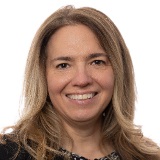
Carol A. Mulrooney, Ph.D. is an Investigator in GSK’s Encoded Libraries Technology Platform with a focus on providing and supporting data analysis within the post-selection chemistry team. Prior to joining GSK, Dr. Mulrooney worked at the Center for the Development of Therapeutics at the Broad Institute. She began her career at the Broad by utilizing her expertise in synthetic organic and medicinal chemistry toward the design of new screening collections of structurally complex small molecules and the discovery of potent antimalarial compounds. She subsequently transitioned to a cheminformatics role, providing data analysis and informatics support to drug discovery teams across the institute.Dr. Mulrooney received her doctorate from the University of Pennsylvania in the lab of Prof. Marisa Kozlowski, developing asymmetric syntheses of natural product scaffolds.
Behnam Nabet, PhD, Assistant Professor, Human Biology Division, Fred Hutchinson Cancer Center

Behnam Nabet, PhD, is an Assistant Professor in the Human Biology Division at Fred Hutchinson Cancer Center. He received his B.A. in Biology from the University of Pennsylvania and PhD in Cancer Biology from Northwestern University. He performed his postdoctoral studies at Dana-Farber Cancer Institute and Harvard Medical School. Dr. Nabet’s laboratory is focused on developing strategies to target oncogenic signaling by controlling protein homeostasis. He pioneered the development of a versatile technology platform known as the dTAG system to rapidly degrade any target protein. Dr. Nabet’s work has led to the development of selective agents disrupting cancer drug targets including CDK11, FAK, PIN1, and DCLK1. These promising compounds inhibit critical vulnerabilities and are under continued development as novel therapeutics. Dr. Nabet has been recognized with several scientific honors, including a Claudia Adams Barr Program for Innovative Cancer Research award and an NIH/NCI K22 Transition Career Development Award.
Jana Narasimhan, PhD, Associate Director, PTC Therapeutics Inc.

Jana Narasimhan is currently an Executive director in the Pharmacology group at PTC Therapeutics. She earned her Bachelor of Science degree in University of Madras, India, in 1986. She then moved to the United States and earned her PhD. in Biophysics at the Medical College of Wisconsin, Milwaukee, WI, in 1992. She continued at the Medical College of Wisconsin as a post-doctoral fellow under Dr. Arthur L. Haas, where she solved the crystal structure of Ubiquitin-like protein, ISG15. She was also the recipient of The National Institute of Health Postdoctoral Fellow 1993-1995 for “Investigation of a novel ubiquitin-like system in mammalian cells”. She went on to do a second post-doctoral fellowship in the field of Translation under Dr. Ronald C. Wek at Indiana University School of Medicine, IUPUI, Indianapolis, where she investigated Initiation factor kinases involved in Translation upon stress. She then joined PTC Therapeutics Inc., South Plainfield, NJ, in 2007 where she has been working on the splicing programs. She has been a core team member involved in the “Discovery and Optimization of Small Molecule Splicing Modifiers of Survival Motor Neuron 2 (SMN2) as a Treatment for Spinal Muscular Atrophy”. She has been an integral part of the splicing programs to address Huntington’s disease and Familial dysautonomia.
Sherry Niessen, PhD, Vice President, Proteomics, Belharra Therapeutics

Sherry Niessen is the Head of Platform & Proteomics at Belharra Therapeutics and is focused on chemical probe discovery in cells through chemoproteomics. She has 15+ years of experience in chemical biology and proteomics. Prior to joining Belharra, she was at Pfizer in La Jolla, leading a chemoproteomics group focused on oncology drug discovery with an emphasis on target engagement, biomarker discovery, and mechanism of action of proteins and small molecules. Sherry completed her PhD at The Scripps Research Institute in the laboratory of Dr. Ben Cravatt, her MS in Experimental Medicine from McGill University, and a BS in Biochemistry from Simon Fraser University.
Micah Niphakis, PhD, Director, Chemical Biology, Lundbeck La Jolla Research Center

Micah Niphakis received his PhD in Medicinal Chemistry at the University of Kansas, where he developed synthetic methodologies to facilitate anti-cancer natural product synthesis. He then joined the Cravatt Lab at Scripps Research as a postdoctoral fellow where his research focused on developing chemical tools to study the endocannabinoid system. This work led to the discovery of highly selective, covalent MAGL-targeting electrophiles and photoaffinity probes to globally map lipid binding proteins. In 2014, Micah joined Abide Therapeutics, where he led the development of an industrialized serine hydrolase-directed chemoproteomics platform. He then joined Lundbeck as a part of Abide’s acquisition in 2019, and has continued his role in leading platform development and chemical library enhancement efforts with an expanded mission to uncover chemical tractability for historically challenging targets.
Gisele Nishiguchi, PhD, Group Leader, St. Jude Children's Research Hospital

Gisele received her PhD from the University of California, Santa Barbara, where she completed the total synthesis of a natural product in 32 steps applying a novel methodology in C-glycoside chemistry. After her PhD, she joined Novartis in Emeryville, CA, and later Cambridge, MA, as a medicinal chemist, where she worked on several projects, resulting in the identification of two clinical candidates and several chemical probes. In 2018, she transitioned to a new role at St. Jude Children’s Research Hospital as a group leader and assisted in the evaluation and improvement of St. Jude’s compound collection and establishment of a targeted protein degradation platform focused on pediatric indications.
Daniel Nomura, PhD, Professor of Chemical Biology and Molecular Therapeutics, Department of Chemistry, University of California, Berkeley

Dan Nomura is a professor in the Departments of Chemistry, Molecular and Cell Biology, and Nutritional Sciences and Toxicology at the University of California, Berkeley and an adjunct professor in the Department of Pharmaceutical Chemistry at UCSF. He is also the director of the Novartis-Berkeley Center for Proteomics and Chemistry Technologies and an Investigator in the Innovative Genomics Institute. He earned his BA in Molecular and Cell Biology and PhD in Molecular Toxicology at UC Berkeley with Professor John Casida and was a postdoctoral fellow at The Scripps Research Institute with Professor Ben Cravatt before returning to Berkeley as a faculty member in 2011. Among his honors are selection as a Searle Scholar, American Cancer Society Research Scholar Award, the Department of Defense Breakthroughs Award, and the Mark Foundation for Cancer Research ASPIRE Award. The Nomura Research Group is focused on redefining druggability using chemoproteomic platforms to tackle the undruggable proteome.
Atsushi Ohta, PhD, Head of Modality Technology Department, Chugai Pharmaceutical Co., Ltd.

Atsushi Ohta received a Ph.D. from The University of Tokyo, Japan, in 2009. He joined Chugai Pharmaceutical Co. Ltd., in 2009 and has been working for cyclic peptide drug discovery. He had also been participating in developing LUNA18 currently in a clinical trial.
Udo Oppermann, PhD, Professor & Chair, Musculoskeletal Sciences, University of Oxford

Udo Oppermann holds the Chair in Musculoskeletal Sciences at the University of Oxford and received his training in biochemistry, structural and chemical biology from Philipps University Marburg (Germany) and Karolinska Institute (Stockholm, Sweden). Since 2003 he works at University of Oxford, UK, as principal investigator at the Structural Genomics Consortium and since 2009 as Director of Laboratory Sciences at the Botnar Research Centre and as co-Director of the Oxford Centre for Translational Myeloma Research. His research centers on target identification and validation in metabolism, epigenetics, focusing on inflammation and oncology.
Tudor Oprea, MD, PhD, CSO, Expert Systems, Inc.

Tudor I. Oprea is a digital drug hunter with three decades of experience in knowledge management applied to target and drug discovery. He co-developed ChemGPS, the “lead-like approach,” systems chemical biology, and a knowledge-based classification for human proteins. He co-discovered the first GPER agonist (orphan drug designated, LNS8801), GPER antagonist, and several GLUT transporter inhibitors. His machine-learning models include cheminformatics, drug discovery, disease, and target biology. His team maintains DrugCentral and Pharos, part of an NIH Common Fund project. He co-authored over 300 publications and 10 US patents and edited 2 books on informatics in drug discovery. He is CSO at Expert Systems, Inc., a San Diego-based i2020 Accelerator company.
Brian M. Paegel, PhD, Professor, Pharmaceuticals Sciences, University of California, Irvine

Brian M. Paegel earned his undergraduate degree in chemistry from Duke University and his Ph.D. in chemistry from UC Berkeley as a student of Richard Mathies working on miniaturized and integrated DNA sequencing technology development in collaboration with the Human Genome Project. He pursued postdoctoral studies in chemical biology and molecular evolution under the mentorship of Gerald Joyce at Scripps Research. He was the recipient of both a NIH National Research Service Award (F32) and a Pathway to Independence Award (K99/R00). In 2008, Paegel was appointed to the Scripps Research chemistry faculty and received the NIH Director’s New Innovator award and an NSF CAREER award in recognition of his contributions in reaction miniaturization. In 2019, Paegel rejoined the University of California System where he is Professor in the Departments of Pharmaceutical Sciences, Chemistry, and Biomedical Engineering at Irvine. His laboratory develops chemical synthesis methodology for the preparation of solid-phase DNA-encoded libraries and engineers accompanying analytical instrumentation to conduct activity-based "off-DNA" library screens. Looking forward, Paegel is exploring droplet-compatible assay concepts that could render the entire proteome "druggable" and fulfill the long-standing vision of the Genome Project to translate DNA sequence into drugs.
Keykavous Parang, PhD, Professor, Biomedical and Pharmaceutical Sciences, Chapman University

Dr. Parang holds the position of Full Professor in Medicinal Chemistry and Pharmacology at Chapman University School of Pharmacy situated in Irvine, California. Additionally, he maintains a dual role as a faculty member within the Department of Chemistry and Biochemistry at the Schmid College of Science and Technology, also part of Chapman University. In a collaborative capacity, Dr. Parang contributes his expertise as an affiliate volunteer faculty member, specifically as a Project Scientist Step III, within the division of Nephrology and Hypertension in the Department of Medicine at the University of California, Irvine. Dr. Parang's academic journey includes earning his PhD in medicinal chemistry from the Faculty of Pharmacy at the University of Alberta in 1997. Following this, he embarked on a postdoctoral study focusing on solid-phase organic synthesis within the Department of Chemistry. He furthered his postdoctoral studies in bioorganic chemistry, undertaking research at Rockefeller University in New York and Johns Hopkins University in Baltimore. His research at the University of Rhode Island commenced in October 2000, where he subsequently ascended to the rank of full professor in July 2008. During his time there, he undertook the role of Program Coordinator for the Rhode Island IDeA Network of Biomedical Research Excellence (RI-INBRE) NIH program from 2012 to 2013. Dr. Parang's contributions to the academic community are evidenced by his authorship of 232 peer-reviewed publications, 23 patents or patent applications, and 198 meeting abstracts. His research pursuits converge at the dynamic crossroads of chemistry and biology, with a particular emphasis on medicinal chemistry, organic chemistry, nanomedicine, and drug delivery. His research activities encompass: 1. Devising Peptides as Agents against Bacterial and Fungal Infections 2. Leveraging Peptide Nanomaterials for the Advancement of Drug Delivery 3. Innovating Inhibitors for Protein Tyrosine Kinases 4. Pioneering the Development of Multifunctional Antiviral Agents
Maurizio Pellecchia, PhD, Professor, Biomedical Sciences Division, University of California, Riverside
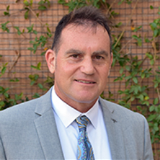
Our laboratory focuses on the design, synthesis and evaluation of novel pharmacological tools in the areas of cancer, neurodegeneration, and potentially other disease areas, using innovative drug discovery approaches. The overall goal of the laboratory is to bring together basic sciences including modern nuclear magnetic resonance spectroscopy (NMR) techniques, X-ray crystallography, computer modeling, traditional medicinal synthetic chemistry, and cell biology to elucidate the molecular basis of disease and to design novel pharmacological tools that serve for target validation and to develop novel therapeutic agents. A central theme of our laboratory is the development of novel methodologies to tackle protein-protein interactions (PPIs) as targets for drug discovery, and to further advance our most promising agents into potential therapeutics.
Christopher B. Phelps, PhD, Vice President and Head, Early Discovery, Nurix Therapeutics, Inc.

I currently head the early discovery group at Nurix Therapeutics, where we leverage our internal DEL collection to identify ligands to target proteins for degradation by harnessing E3 ligases and the Ubiquitin/Proteasome pathway. Prior to joining Nurix I worked at GSK, helping build their internal DEL platform, and leading the team screening the GSK DEL collection by affinity selection.
Louise Plais, PhD, Post-Doctoral Fellow, Pharmaceutical Sciences, ETH Zurich

Louise Plais studied chemistry at the National Graduate School of Chemistry of Montpellier, France. After a research project under the direction of Professor Galia Maayan at the Schulich Faculty of Chemistry, Israel, and an industrial project at Smartox Biotechnology, a French start-up, she obtained her engineer diploma in 2017. She then joined ETH Zurich, Switzerland, for her PhD under the supervision of PD Dr. Jorg Scheuermann and Professor Dr. Dario Neri. She worked on the development and first synthesis of large dual-display DNA-encoded chemical libraries (DELs) and graduated in 2022. As a post-doctoral fellow at ETH Zurich, she is collaborating with different industrial partners such as Barrier Biosciences and F. Hoffmann-La Roche. Her research interests encompass novel encoding strategies for DELs, small molecules and macrocycles libraries, and selection strategies.
Robin L. Polt, PhD, Professor, Chemistry & Biochemistry, University of Arizona

Robin Polt earned his PhD from the late Gilbert Stork at Columbia University in 1986. Since then he has developed new synthetic methods for the synthesis of novel amino acids, alkaloids, glycolipids, and glycosides that modulate the interaction of drug candidates with biological membranes. Currently, his group is focused on glycopeptide drugs based on endogenous peptide hormones.
William Pomerantz, PhD, Associate Professor, Department of Medicinal Chemistry, University of Minnesota, Twin Cities

William C. K. Pomerantz received his BS in chemistry from Ithaca College in 2002, followed by a Fulbright Fellowship at ETH, Zurich with Professors Francois Diederich and Jack Dunitz. He obtained a PhD in chemistry under Professors Sam Gellman and Nick Abbott at the University of Wisconsin-Madison and was a postdoctoral fellow under Professor Anna Mapp at the University of Michigan. He joined the chemistry faculty at the University of Minnesota in 2012 and was granted tenure in 2018. He is currently a McKnight Presidential Fellow. His research focuses on the development of chemical biology and medicinal chemistry approaches for modulating protein-protein interactions. Protein-Observed Fluorine NMR (PrOF NMR) is one such tool in his lab that is being developed as a new method for fragment-based ligand discovery (FBLD) and has been applied towards inhibiting a diverse area of epigenetic protein complexes. Professor Pomerantz is currently the global council co-chair for the International Chemical Biology Society and Early Career Board Member for ACS Med. Chem. Lett.
Daniel J Poon, PhD, Senior Director, Medicinal Chemistry, RAPT Therapeutics

Daniel Poon is the Senior Director of Medicinal Chemistry at RAPT Therapeutics responsible for the discovery of novel small molecule therapies for immuno-oncology and inflammation indications. Prior to RAPT, he was an associate director in the Novartis Institutes for Biomedical Research at Emeryville, CA, where he has led a number of programs in the anti-infective and oncology space including encorafenib (BRAFTOVI) for the treatment of mut-B-RAFV600E positive metastatic melanoma. He leads a conventional life outside of medicinal chemistry, and enjoys traveling and spending time with his family.
Terence Rabbitts, FRS, FMedSci, Professor, Molecular Immunology, Center for Cancer Drug Discovery, Institute of Cancer Research

Prof. Terry Rabbitts is a molecular immunologist who trained at the MRC Laboratory of Molecular Biology (LMB) in Cambridge with Cesar Milstein and currently works at the Institute of Cancer Research, London. He is a Fellow of the Royal Society, a Fellow of the Academy of Medical Sciences and an EMBO Member. He has been the recipient of the Colworth Medal, the CIBA prize and the Clotten Foundation Prize in recognition for his work on the diversity and rearrangement of human antibody genes, and on chromosomal translocation genes in cancer aetiology and novel approaches to cancer drug discovery.
Rayees Rahman, PhD, Co-Founder & CEO, Harmonic Discovery

Rayees Rahman is CEO and co-founder of Harmonic Discovery. Rayees completed his PhD in Biophysics and Systems Pharmacology at the Icahn School of Medicine at Mount Sinai where he developed machine learning models to characterize protein kinase structural biology.
Murali Ramachandra, PhD, CEO, Aurigene Discovery Technologies, Ltd.

Dr. Murali Ramachandra is the CEO at Aurigene Discovery Technologies Limited, a biotech company engaged in drug discovery for cancer and inflammatory diseases. He received his PhD from University of Idaho (USA), and postdoctoral training from University of Kansas Medical Center and DuPont Experimental Station. Prior to his current role, he has held the position of the Chief Scientific Officer at Aurigene, and positions of increasing responsibility at Schering-Plough Pharmaceuticals and US National Cancer Institute. He has contributed to the identification of 16 novel drug candidates, co-authored 60 publications in international peer-reviewed journals and is an inventor of 18 granted US patents.
Hai Rao, PhD, Professor and Chair, Department of Biochemistry, Southern University of Science and Technology, China

The long-term goal of our lab is to understand the mechanism and function of ubiquitin-mediated proteolysis. Dr. Rao had strong trainings in biochemistry, genetics, and cell biology under the guidance of Drs. Bruce Stillman (Cold Spring Harbor Laboratory) and Alex Varshavsky (California Institute of Technology). As a postdoc in Dr. Varshavsky's lab, I discovered a cohesin subunit Scc1 as the first physiological substrate of the N-end rule pathway, which was the first ubiquitin-dependent degradation pathway identified 15 years earlier using artificial substrates and its use was instrumental in uncovering critical mechanistic attributes of the ubiquitin system. Since 2002, Dr. Rao has established his own independent laboratory at the University of Texas Health, San Antonio and has risen up to tenured Professor. As PI on the American Cancer Society-, NIH- and DOD-funded grants, he has developed unique angles and novel assays to define how proteins are selected and escorted to the proteasome, and also the significance of regulated proteolysis in cancers and prion diseases.
Jarrett R. Remsberg, PhD, formerly of Cravatt Lab, Scripps Research Institute; Scientist, Proteomics, Belharra Therapeutics

Jarrett Remsberg first trained at the National Cancer Institute developing peptide-based inhibitors of membrane signaling pathways. He earned a BS in both Chemical-Biological Engineering and Biology from MIT and his PhD in Biochemistry and Molecular Biophysics at the University of Pennsylvania Perelman School of Medicine with Professor Mitch Lazar. Jarrett then joined the Cravatt Lab at Scripps Research for postdoctoral studies as an American Cancer Society Fellow. His research focused on applying chemoproteomic techniques to interrogate the ligandable proteome, including serine hydrolases involved in NRAS depalmitoylation and function-first strategies to assess the global impact of electrophilic compounds on protein complexes in human cells. Jarrett has since moved to industry as one of the first employees to join Belharra Therapeutics, establishing a novel photoaffinity-based chemoproteomic platform and continuing to advance mass spectrometry and chemoproteomic techniques to accelerate drug discovery.
Jack Rogers, PhD, Director, Neurochemistry Laboratory, Associate Professor, Psychiatry-Neuroscience, Harvard Medical School and Massachusetts General Hospital

Jack Rogers, PhD is a leading authority on the role that RNA in the maintenance of iron homeostasis related to disease processes in the blood (anemia) and in Alzheimer’s disease, and more recently in the etiology of Parkinson’s disease. Director of the Neurochemistry Laboratory in the Psychiatry/Neuroscience Department at Massachusetts General Hospital and an Associate Professor at the Harvard Medical School, Jack has an extensive funded track record in established scientific journals (Cell, J. Biol. Chem. including cover issue, and PNAS). His numerous articles and peer review publications won him a Zenith award from the Alzheimer’s Association on the subjects of iron metabolism, and translational control related disease progression. Currently, he has included a track record of novel iron metabolic approaches to Alzheimer’s disease and Parkinson’s disease. An integrative program was instigated to use RNA-based therapeutic strategies to ameliorate the progression of Alzheimer’s disease (2002-2019), and for Parkinson’s disease in partnership with the Michael J. Fox Foundation (2009-2020). He is an excellent mentor of postdoctoral fellows, in addition to teaching molecular biology of disease at the Harvard Medical School. Dr. Rogers contributes a creative approach to gene-based therapies and basic science, and he serves on several scientific advisory Boards. He and his family live in Arlington, Massachusetts. (External Link. http://connects.catalyst.harvard.edu/PROFILES/ProfileDetails.aspx?Person=JTR4)
Jason Rolfe, PhD, Co-Founder & CTO, Variational AI

Dr. Jason Rolfe is co-founder and CTO of Variational AI, which has developed Enki, a foundation model trained to rapidly create novel and selective small molecule leads based on a preclinical target product profile (TPP). Leveraging the power of generative AI, Enki has delivered hundreds of molecules experimentally validated for potency, selectivity, and novelty by multiple pharmas and biopharmas in commercial partnerships. Jason earned his PhD in machine learning from Caltech, and completed a post-doc with Yann LeCun at NYU. He has been conducting research in machine learning for more than 17 years, with a focus on deep learning, generative modeling, and cheminformatics.
Brandon Rosen, PhD, Senior Scientist, Medicinal Chemistry, Arcus Biosciences

Brandon Rosen is a Research Fellow Medicinal Chemistry department at Arcus Biosciences, where he has worked since January 2015. At Arcus, he has worked on multiple clinical programs, including the HIF-2a inhibitor AB521, the dual A2aR/A2bR antagonist etrumadenant, and the CD73 inhibitor quemliclustat. Prior to joining Arcus, Brandon completed his PhD at The Scripps Research Institute under the direction of Professor Phil Baran, where he studied the total synthesis of terpenes of mixed biosynthetic origin and developed new methods for electro-organic chemistry.
Lourdes Rueda, PhD, Principal Scientist, Medicinal Chemistry, Recursion Pharmaceuticals Inc.

Lourdes Rueda is a seasoned drug discovery professional with over two decades of experience. She launched her career in medicinal chemistry at GSK, gaining invaluable experience both in the US and abroad. The latter as part of the Diseases for the Developing World Center, in Spain. During her time at GSK she was instrumental in projects for different therapeutic areas, like oncology, hemoglobinopathies, and infectious diseases. In 2019, Lourdes followed her passion to industrialize drug discovery and joined the Recursion's team on its mission of decoding biology to radically improve lives. During her tenure at Recursion, Lourdes has made significant contributions to several projects in areas like rare diseases, oncology, and fibrosis. Additionally, she has played a key role in building Recursion’s industrialized approach to drug discovery.
Anastasiia Sadybekov, PhD, Research Scientist, Laboratory of Seva Katritch, The Bridge Institute, University of Southern California

Anastasiia Sadybekov is a Research Scientist under Seva Katritch at Dornsife Center for New Technologies in Drug Discovery and Development, The Bridge Institute, University of Southern California. She received her Master’s of Science in Chemistry from Moscow State University and PhD in Computational Chemistry from University of Southern California. Her research interests include molecular function of G protein-coupled receptors and computer-aided drug discovery with a particular focus on screening of giga large combinatorial space.
Patrick J. Salveson, PhD, Co-Founder and Vice President, Research & Development, Vilya Therapeutics

Patrick Salveson serves as Vice President of Research and Discovery at Vilya where he and his team develop and implement computational design processes to design permeable drug-like macrocycles. Prior to Vilya, Patrick completed a post-doctorate at the University of Washington working with David Baker after completing his PhD at the University of California Irvine working with James Nowick.
Jack D. Scott, PhD, Director, Discovery Chemistry, Merck & Co.

Dr. Jack Scott obtained his B.S. in Chemistry from the University of North Dakota in 1994 then moved on to Colorado State University where he obtained his Ph.D. under the guidance of Robert Williams. In 2001, Jack joined Schering-Plough as a senior scientist in the medicinal chemistry department. After the merger with Merck in 2009, Jack has worked in many facets of drug discovery including parallel medicinal chemistry, fragment-based lead design (FBLD), high throughput experimentation (HTE) and currently as the lead of the DNA encoded library (DEL) chemistry team. Jack has worked on teams that discovered multiple drug candidates including verubecestat, a BACE1 inhibitor that evolved from a fragment hit.
Daniel Seeliger, PhD, Associate Vice President, Head of Small Molecule Drug Design, Exscientia

Daniel is theoretical chemist by training and holds a PhD in Computational Biophysics from the Max-Planck-Institute for Biophysical Chemistry in Gottingen, Germany (Prof Bert de Groot). After an academic postdoc he joined the Computational Chemistry group of Boehringer Ingelheim where he worked on biologics and small molecule projects across various therapeutic areas. In 2017 he was a appointed head of a computational chemistry team overseeing CNS and brain cancer projects and in 2020 interim Director of the Computational Chemistry group. In 2021 he joined Exscientia as Executive Director Computational Drug Design leading an interdisciplinary design team and guiding technology development. In 2023 he was appointed Associate Vice President, Head of Small Molecule Design.
Anjani Shah, PhD, Senior Conference Director, Cambridge Healthtech Institute

No bio available.
- AI/Machine Learning for Early Drug Discovery - Part 2
- AI/Machine Learning for Early Drug Discovery - Part 1
- Encoded Libraries for Drug Discovery
- Fragment-Based Drug Discovery
- Small Molecule Immuno-Modulators
- Oral Peptides & Macrocyclics
- Protein-Protein Interactions
- RNA-Modulating Small Molecule Drugs
- Degraders & Molecular Glues - Part 2
- Degraders & Molecular Glues - Part 1
Karlie Sharma, PhD, Program Officer, National Center for Advancing Translational Sciences (NCATS), National Institutes of Health

Dr. Karlie Sharma joined the National Center for Advancing Translational Sciences (NCATS) in January 2017 as a program officer and NCATS coordinator for the Common Fund program “Illuminating the Druggable Genome” (IDG). In this capacity, she oversees the Resource Dissemination and Outreach Center (RDOC), which is responsible for facilitating widespread access to IDG consortium-generated data and resources and provides overall administration to the IDG Consortium and its relationships with external partners. She also manages a number of teams working to illuminate understudied proteins through the IDG’s R03 pilot project initiative. Dr. Sharma is also involved in a number of additional initiatives at NCATS, including (1) the Discovering New Therapeutic Uses for Existing Molecules program, (2) the Small Business Technology Transfer (STTR) and Small Business Innovation Research (STTR) program and (3) is co-lead on a number of Artificial Intelligence related activities. Dr. Sharma received her Ph.D. in Molecular Physiology and Biophysics from Baylor College of Medicine in Houston, Texas. Prior to joining NCATS, Dr. Sharma was a postdoctoral fellow in the Laboratory of Host Defenses headed by Dr. Harry Malech at the National Institute of Allergy and Infectious Diseases (NIAID).
Pat Sharp, PhD, Co-Founder and Vice President, Discovery Sciences, Gate Bioscience

Pat Sharp is the co-founder and VP of Discovery Sciences at Gate Bio. Pat obtained his PhD in chemistry from the ANU in Australia with Prof Martin Banwell, and held postdoctoral research positions at WEHI with Chris Burns, and UCSF with Prof. Jack Taunton. It was at UCSF Pat was first started research into Sec61 modulators and made seminal discoveries relating their selectivity, including developing methods for their rational selectivity optimization. After working as a medicinal chemist at Merck in South San Francisco for a few years, Pat co-founded Gate Bioscience, the first company dedicated to the discovery and development of Molecular Gates.
Barry Sharpless, PhD, Professor, Chemistry, Scripps Research Institute; 2022 and 2001 Nobel Laureate

Dr. Sharpless's >50-year research career has been devoted to finding new tools and better general methods for exploring the chemical universe. He shared the 2001 Nobel Prize in Chemistry for his work on chirally catalyzed oxidation reactions. In 2022, Barry was awarded the Nobel Prize in Chemistry for developing 'click chemistry', making him only the second scientist to win two Nobels in Chemistry. Click chemistry, a discovery methodology based on the insight that the molecules of life are made from less than several dozen small building blocks, provides a reliable way to uncover useful chemical function and spring-loaded ‘perfect’ reactions. Today the focus of the Sharpless lab is Sulfur(VI) fluoride exchange (SuFEx) click chemistry, which allows reliable molecular connections under metal-free conditions. SuFEx has applications in synthetic methodology; chemical biology and drug discovery; and polymers and material science. Barry received his BA from Dartmouth College in 1963 and his PhD in Chemistry from Stanford University in 1968. Before joining Scripps Research in 1990, he was chemistry faculty at MIT and Stanford.
Rebecca Silberman, PhD, Senior Venture Associate, RA Capital Management LLC

Rebecca Silberman is a Senior Associate on the Venture Team at RA Capital Management. Rebecca serves as the board observer for a number of portfolio companies including Triana Biomedicines, Ambagon Therapeutics, and Ventus Therapeutics. She has a BA in Biology from Colgate University and a Ph.D. in Biology from MIT.
Chris Smith, PhD, Executive Director, Drug Discovery, Mirati Therapeutics

Dr. Christopher R. Smith is the Executive Director for Drug Discovery at Mirati Therapeutics. Mirati is a targeted oncology company focused on targeted solutions for genetic and immunological drivers of cancer. Prior to Mirati, Christopher spent over a decade developing fragment-based approaches coupled with medicinal chemistry to discover development candidates across a range of therapeutic areas. For example MRTX1719 and SGX523 for cancer and TAK-020 for inflammation. Christopher co-led the FBLD conference in San Diego in 2018 and is a strong advocate for fragment-based approaches in drug discovery. Christopher obtained his PhD in organic chemistry from the University of Glasgow and started his medicinal chemistry career at Pfizer, Sandwich in 1999.
Maria Soloveychik, PhD, Co-Founder & CEO, SyntheX
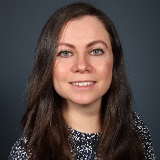
Dr. Maria Soloveychik is the Co-Founder and CEO of SyntheX, a therapeutics company focused on accelerating drug discovery using synthetic biology. The company’s core technologies, ToRPPIDO and ToRNeDO, rely on genetic engineering and evolutionary selection to synthesize and identify compounds that disrupt protein-protein interactions or lead to selective target degradation. SyntheX was founded in 2016 and is located in San Francisco. Maria has obtained her PhD from the department of Molecular Genetics at the University of Toronto, where she discovered novel pathways linking metabolism and epigenetic signaling. Maria was previously a research scientist at a structural genomics consortium at the University Health Network, where her work led to the determination of numerous structures and identification of several drug candidates.
Parthiban Srinivasan, PhD, Professor, Data Science and Engineering, Indian Institute of Science Education and Research, Bhopal

Parthiban Srinivasan, an experienced data scientist, earned his PhD from Indian Institute of Science, specializing in Computational Chemistry. After his PhD, he continued the research at NASA Ames Research Center (USA) and Weizmann Institute of Science (Israel). Then he worked at AstraZeneca in the area of Computer Aided Drug Design for Tuberculosis. Later, he headed informatics business units in Jubilant Biosys and then in GvkBio before he floated the company, Parthys Reverse Informatics and later an AI consultancy, Vingyani. Currently, he is a Professor at Indian Institute of Science Education and Research (IISER) Bhopal, teaching Data Science.
Christopher Stratton, PhD, Senior Scientist, Discovery Technologies & Molecular Pharmacology, Janssen Pharmaceuticals, Inc.

Chris received his PhD in Chemistry from Cornell University as a student in the Tri-Institutional Training Program in Chemical Biology. He completed his graduate research in the laboratory of Professor Derek S. Tan with a focus on the diversity-oriented synthesis of macrocycles, followed by a postdoctoral fellowship in mechanistic enzymology with Professor Vern L. Schramm at the Albert Einstein College of Medicine. Chris began his industrial career at Pfizer where he applied synthetic biology approaches to accelerate natural product drug discovery. In 2018, Chris moved to J&J where he is currently a Senior Scientist and leads the mRNA display screening team.
Chaohong Sun, PhD, Senior Director, Lead Discovery, AbbVie, Inc.

Chaohong Sun is a Sr. Research Fellow and Sr. Director in Discovery Research organization at Abbvie, where she leads an organization including protein sciences, different screening platforms, and structural biology to support Abbvie small molecule projects. She also heads up the lead discovery strategy team that is responsible to set and execute integrated lead generation strategies (including fragment-based approach, DEL and HTS) for Abbvie’s early portfolio targets. She received her Ph.D. from Dartmouth College in biophysical chemistry and then joined Abbott as a postdoctoral research fellow to study structures and functions of proteins involved in apoptosis pathway before becoming a staff scientist. She is coauthor of over 50 peer reviewed scientific publications and patents.
Chengzao Sun, PhD, Principal Scientist, Janssen Pharmaceuticals Inc

Dr. Sun is an experienced peptide chemist with 20+ years in peptide drug discovery and development at Amylin, BMS, Merck, and Janssen. His experiences cover team and capability building and internal and external budget and resource managing; project chemistry leader in identifications of 1 Ph2b, 1 Ph1, 2 NME, and 2 late-lead candidates; drug product leader on 2 Ph2-3, 1 Ph1, and 1 preclinic candidate. His expertise includes oral and injectable macrocyclic, long linear peptide, and peptide conjugates, across discovery to Ph3 including IND, CMC, drug product, and clinical protocol.
Alexander Taguchi, PhD, Director, Machine Learning, Antibody Discovery, iBio, Inc.

Alex has built his career around applying machine learning to problems in biology. He has 13 years of experience in computational biology and 30+ publications spanning work at institutions including the Massachusetts Institute of Technology. At RubrYc Therapeutics, Alex managed antibody discovery campaigns using machine learning to produce drug molecules with exquisite epitope-selectivity, leading to the company’s acquisition by iBio in 2022. Now, Alex is driving the development of iBio's machine learning branch for epitope-steered antibody discovery.
Weiping Tang, PhD, Professor, Pharmaceutical Sciences and Director, Medicinal Chemistry Center, University of Wisconsin-Madison

Dr. Weiping Tang received his PhD in Chemistry from Stanford University and completed his postdoctoral training in Chemical Biology and Medicinal Chemistry at Harvard University and Broad Institute as a HHMI postdoctoral fellow. He joined the faculty of UW-Madison as an Assistant Professor in the School of Pharmacy in 2007. He is currently Janis Apinis Professor of Pharmaceutical Sciences and Vilas Distinguished Achievement Professor of UW-Madison. He also holds a joint faculty appointment at the Department of Chemistry since 2013. His group currently focuses on targeted protein degradation by developing small molecule and antibody-based degraders for various disease associated proteins.
Philip Thompson, PhD, Professor, Department of Medicinal Chemistry, Monash University
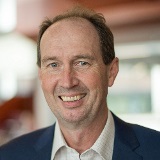
Philip Thompson is a Professor of Medicinal Chemistry at Monash Institute of Pharmaceutical Sciences, Monash University. His research interests examine questions about the molecular pharmacology of organic molecules, and his team aims to develop new tools and methods to answer those questions. His group has diverse interest with notable work on identifying inhibitors of PI3 kinase isoforms as potential antithrombotics and cancer therapeutics. In peptide science, his group attempts to develop peptide chemistry to yield compounds with improved utility with programs in antibacterial cyclic lipopeptides, peptide GPCRs, and protease inhibitor development.
Maricel Torrent, PhD, Principal Research Scientist, Computational Drug Discovery, AbbVie, Inc.
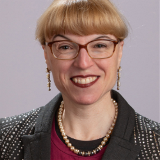
Result-oriented Computational Chemist with more than two decades of pharma industry experience in the application of Molecular Modeling to small molecule drug discovery. Key player in global pharmaceutical companies, Merck, Abbott, AbbVie. Technical skills and scientific strengths include 3D- and 2D-, ligand-based and structure-based drug design, as well as data mining and analysis. Strong competence as a team player, team builder, mentor, and group leader. Excels at creatively solving challenging problems that require tenacity and drive, and that involve multiple experts. Co-author of more than 80 peer-reviewed scientific articles and patents; two book chapters.
Ching-Hsuan Tsai, PhD, Director, Discovery Technologies, Relay Therapeutics, Inc.

I am currently Director of Discovery Technologies at Relay Therapeutics, where I lead a group focused on advancing DNA Encoded Library screening to enable the discovery of novel chemical matter via Machine Learning. Prior to joining Relay, I worked at GlaxoSmithKline, where I spearheaded efforts to enable functional DEL screening, DEL screens for lead discovery programs, and the application of DEL for targeted delivery.
Sriram Tyagarajan, Associate Principal Scientist, Discovery Chemistry, Merck Sharp & Dohme LLC

Sriram Tyagarajan is an associate principal scientist in the high-throughput experimentation & lead discovery group at Merck Research Labs in Rahway. He is currently involved in the fragment-based lead discovery. Prior to that in the discovery chemistry group, he pursued novel treatments for animal health, cardiovascular, CNS, immunology, and diabetes. He was one of the pioneering members of the late-stage functionalization group at Merck focused on identifying methods for activating and derivatizing drug-like small molecules across several therapeutic areas. He then joined the automation & capabilities enhancement group where he pursued his interest in technology enablement with a focus on robotics, cheminformatics design tools, catalysis, and C-H activation in solving challenging problems in medicinal chemistry. He has extensive experience in high-throughput experimentation and nano-scale chemistry. Sriram received his M.S from University of Missouri-Columbia.
James Vasta, PhD, Senior Research Scientist, Research & Development, Promega Corporation
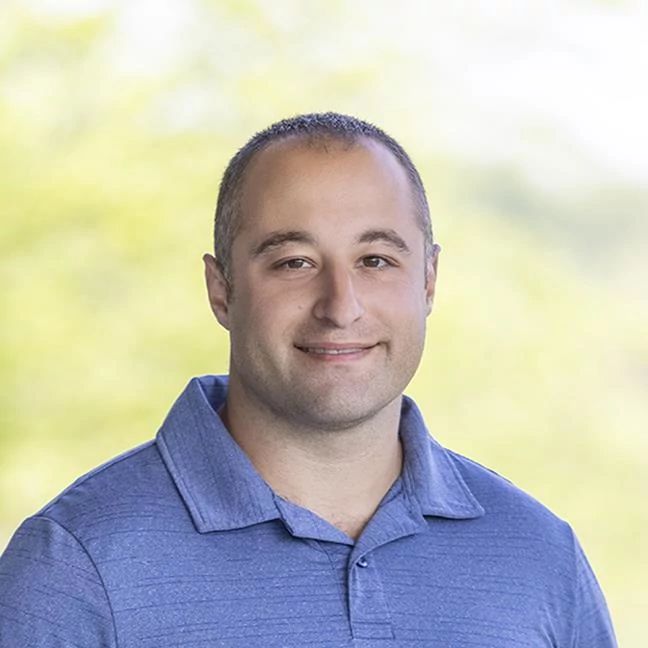
At Promega, James is focused on the development of target engagement technologies to investigate drug-target interactions in live cells using NanoBRET. Current areas of interest include wide spectrum live-cell kinase selectivity profiling and target engagement within the DNA damage response pathway. Prior to joining Promega, Jim received his Ph.D. in Biochemistry from the University of Wisconsin-Madison, where he focused on exploring the enzymology and pharmacology of collagen prolyl 4-hydroxylases.
Willem Velema, PhD, Assistant Professor, Physical Organic Chemistry, Radboud University

Wim studied pharmacy at the University of Groningen where he graduated in 2010 after working with Sabeth Verpoorte and Luke Lee at UC Berkeley on cell handling in microfluidic chips. He then continued his studies in the lab of Ben Feringa where he obtained his PhD cum laude in 2014 after developing photocontrolled drugs. He was an EMBO- and Rubicon Postdoctoral Fellow in the laboratory of Eric Kool at Stanford University from 2015-2019, where he worked on nucleic-acid chemistry. In 2020 he started as an assistant professor at the Radboud University in Nijmegen. His current research focuses on developing chemical biology tools to understand (bacterial) drug resistance and is supported by funding of the Dutch Research Council and European Research Council.
Marcel Verdonk, PhD, Senior Director, Computational Chemistry & Informatics, Astex Pharmaceuticals

Marcel Verdonk received his PhD from Utrecht University in 1995. He then spent four and a half years at the Cambridge Crystallographic Data Centre (CCDC), where he was responsible for the development of a number of structure-based design tools. Since November 2000, Marcel has been at Astex Pharmaceuticals, where he heads up a group developing informatics and structure-based design software applications.
Domagoj Vucic, PhD, Staff Scientist, Early Discovery Biology, Genentech
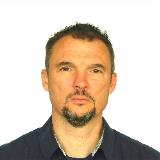
Domagoj Vucic, PhD, is a Senior Fellow and a Project Team Leader at Genentech in South San Francisco, USA. He obtained a BS from the University of Zagreb, Croatia, and a PhD from the University of Georgia, USA. He completed postdoctoral training in the laboratory of Dr. Vishva Dixit. Domagoj’s laboratory investigates the biological role of modulators of signaling pathways, and their involvement in cellular processes triggered by TNF family ligands and other pro-inflammatory stimuli. At Genentech, he leads an effort to develop compounds that target select kinases and ubiquitin ligases for blocking uncontrolled inflammatory responses and/or enhancement of the survival of damaged cells and tissues.
Bjorn Walse, PhD, CEO, SARomics Biostructures AB

Dr. Bjorn Walse is co-founder and CEO of SARomics Biostructures with over 20 years of drug discovery experience. He has a deep interest in hit finding strategies and especially for inhibiting PPIs. He performed postdoctoral research at UC Berkeley and received his doctorate in physical chemistry from Lund University, Sweden.
Patrick Walters, PhD, Chief Data Officer, Relay Therapeutics, Inc.

Pat Walters is the Chief Data Officer at Relay Therapeutics in Cambridge, MA. His group focuses on novel applications of computational methods that integrate computer simulations and experimental data to provide insights that drive drug discovery programs. Prior to joining Relay, he spent more than 20 years at Vertex Pharmaceuticals where he was Global Head of Modeling & Informatics. Pat is co-author of the book “Deep Learning for the Life Sciences,” published by O’Reilly and Associates. He is a member of the editorial board for Artificial Intelligence in the Life Sciences and is on the editorial advisory boards of The Journal of Medicinal Chemistry and The Journal of Chemical Information and Modeling. Pat received his PhD in Organic Chemistry from the University of Arizona, where he studied the application of artificial intelligence in conformational analysis. Prior to obtaining his PhD, he worked at Varian Instruments as both a chemist and a software developer. Pat received his BS in Chemistry from the University of California, Santa Barbara.
Benjamin Walters, PhD, Senior Principal Scientist, Genentech, Inc.

My group at Genentech has two particular focus areas: (I) to utilize experimental data to restrain (guide) and/or validate molecular dynamics simulations; and (II) to use hydrogen exchange (HX) experiments and other biophysical tools in all stages of our research pipeline to understand protein and/or pharmacological MOA, folding, and how proteins bind to other proteins or small molecules and characterize our research targets. We use HX measurements to guide MD simulations, often to define the binding mode of an unknown small molecule binding to a target protein, or to determine the details of a protein:protein interface and focus on proteins considered to be hard targets. This goal often requires development of new sampling algorithms and other computational methods to best utilize data inputs, placing my group into a unique and highly rewarding position where we apply these new tools, often developed heavily through basic science, to enable the drug discovery and development as we go. We then use structural insights produced by experimentally driven MD for further exploration of mechanism. We enable and participate in structure-based drug design for the most difficult targets. By utilizing HX and other data sources to define relevant phase space, we are finding that the seemingly impossible MD sampling problem can be potentially navigated to great ends. I received my PhD in 2013, advised by S. Walter Englander at the University of Pennsylvania, Perelman School of Medicine in Biochemistry and Molecular Biophysics. I joined Genentech as a postdoc in the early-stage formulations department (ESPD) in 2014, and have moved around throughout the company working on problems with protein dynamics ever since. I am currently a senior principal scientist in gRED Drug Discovery, jointly appointed to the departments of Structural Biology and Biochemistry and Cellular Pharmacology. I am also the current chair of the International Society for Hydrogen Deuterium Exchange since 2022.
Shaomeng Wang, PhD, Warner-Lambert/Parke-Davis Professor of Medicine, Pharmacology & Medicinal Chemistry; Co-Director, Molecular Therapeutics Program, University of Michigan

Dr. Shaomeng Wang obtained his chemistry B.S. degree from Peking University in 1986 and his PhD in Chemistry from Case Western Reserve University in 1992 and did his postdoctoral training at NIH. Dr. Wang is currently the Warner-Lambert/Parke Davis Professor in Medicine in the University of Michigan Medical School and professor of medicine, pharmacology and medicinal chemistry. Dr. Wang is the Director of University of Michigan Center for Therapeutic Innovation. Dr. Wang has served as the Editor-in-Chief of the Journal of Medicinal Chemistry, American Chemical Society since 2012. Dr. Wang has co-founded 5 biotech companies to develop novel small-molecule drugs invented from his laboratory and has advanced 7 compounds into clinical development. Dr. Wang has published >300 peer-reviewed papers and is an inventor of 55 issued US patents and hundreds of international patents. Dr. Wang was elected as Fellow of the National Academy of Inventors in 2014, Fellow of American Association for the Advancement of Science in 2019 and was inducted into the Fall of Fame of the Division of Medicinal Chemistry of the American Chemical Society (ACS) in 2020. Dr. Wang was the 2014 University of Michigan Distinguished Innovator and won the 2020 Division of Medicinal Chemistry Award of ACS.
Jin Wang, PhD, Professor, Pharmacology & Chemical Biology, Baylor College of Medicine

Dr. Wang received his B.S. degree in chemistry from Peking University and PhD in physical organic chemistry from the Ohio State University. As a postdoc at the University of North Carolina at Chapel Hill, he worked in the field of drug delivery and nanomedicine. His independent research centers on chemistry and serves biology, spanning from chemical biology tools and method development to rational design of therapeutics, including small molecule inhibitors, protein degraders, and antibody-drug conjugates. His scientific contribution has been recognized by multiple awards including the Distinguished Faculty Award from Chinese-American Chemistry & Chemical Biology Professors Association and Michael E. DeBakey, MD, Professorship in Pharmacology.
Jingxin Wang, PhD, Assistant Professor, Section of Genetic Medicine, Department of Medicine, University of Chicago

Jingxin Wang graduated with a BS in chemistry in 2006 from Peking University, China, where he performed research in computational chemistry and transition-metal catalysis (advisor: Zhi-Xiang Yu). He came to the United States for graduate training and completed his PhD in chemistry in 2011 at the University of Maryland, under the guidance of Herman Sintim. In the Sintim lab, he was trained to synthesize novel molecules to combat bacterial antibiotic resistance. After graduation, he joined Jun Liu’s lab at Johns Hopkins University as a postdoc and conducted research on a novel drug modality called "rapafucin" to induce protein-protein interactions. In 2014, he started further chemical biology training in Peter Schultz's lab (co-advised by Kristen Johnson) at the Scripps Research Institute, where he is performing high-throughput screening, assay development, and target validation for novel viral and cancer immunotherapy, as well as mechanistic studies for molecules that modulate RNA splicing. He joined KU in 2019 as a tenure-track Assistant Professor and moved to the University of Chicago in 2024. His current research focuses on regulating RNA biochemistry and innate immunity in cells by small molecules.
Yaqiang Wang, PhD, Principal Scientist, Chemical Sciences & Structural Biology, Arrakis Therapeutics

Dr. Yaqiang Wang is a Principal Scientist in Structural Biology at Arrakis Therapeutics. Yaqiang received postdoctoral training at University of California Los Angles after his PhD at University of North Carolina at Chapel Hill. His work focuses on the characterization of RNA structure and recognition with molecular partners.
Charles Wartchow, PhD, Associate Director, Global Discovery Chemistry, Novartis Institutes for BioMedical Research

Charles Wartchow is a collaborative, multi-disciplinary scientist with expertise in protein biochemistry (post-doctoral studies, The University of California, Berkeley), organic chemistry (PhD, The Ohio State University), and analytical methods. He developed his extensive drug discovery experience at Roche and Novartis, working in areas ranging from fragment-based screening and DNA-encoded library work to high-throughput biochemical and phenotypic screening campaigns. His current focus is the application of biophysical methods including SPR, BLI, and SHG to the validation and discovery of small molecule starting points for complex protein targets in oncology, virology, bacteriology, and inflammation. Dr. Wartchow is an enthusiastic project leader and frequent collaborator with members of the disease biology, protein sciences, CADD, and chemistry groups.
Eray Watts, Vice President, High Throughput Chemistry, insitro

R.E. (Eray) Watts is Vice President of High Throughput Chemistry at insitro. He has been building and doing selections with DNA-Encoded Libraries, ribosome-display libraries, and mRNA display libraries since 2006. His current passions lie at the interface of DELs and machine learning and how they can be used to inform and speed drug discovery.
Jake Wiener, PhD, Senior Director of Chemistry and Deputy Site Head, Lundbeck La Jolla Research Center, Inc.

Born and raised in New Orleans, Louisiana, Jake completed his undergraduate studies at Harvard University, working with Professor David Evans on the enantioselective synthesis of unnatural amino acids. Moving to the California Institute of Technology, Jake then received his PhD under the guidance of Professor David MacMillan, studying the development of organocatalytic reaction methods and natural product total synthesis. Jake’s industrial career began in 2004 at Johnson & Johnson Pharmaceutical Research & Development in La Jolla, California, where he was a part of multiple programs within the immunology and inflammation arena, leading several programs to deliver candidates into development. Moving to Abide Therapeutics in 2016, Jake had the opportunity to leverage the power of Abide’s chemoproteomics platform to identify clinical candidates for development within the MAGL inhibitor franchise. Since the acquisition of Abide by Lundbeck in 2019, Jake has been leading the Department of Medicinal Chemistry and Chemical Biology, and has had the opportunity to pursue other serine hydrolase inhibitor programs, as well as targets outside the serine hydrolome. Jake lives with his family in La Jolla and enjoys competing in triathlons and relaxing at the beach.
Kevin Wilson, PhD, Vice President, Chemistry, Foghorn Therapeutics

Kevin Wilson joined Foghorn in 2019 as Director in Medicinal Chemistry and now serves as Vice President, Head of Chemistry. He has more than 23 years of drug discovery experience between biotech and big pharma. Before joining Foghorn, Kevin was at Blueprint Medicines where he was the chemistry lead for numerous kinase inhibitor programs within oncology. Prior to that, he began his drug discovery career at Merck, initially within their Neuroscience Research Centre in the UK before transitioning to Boston, US to focus on various target classes within oncology and immunology. Kevin is a named inventor on more than 30 patent applications, and he contributed to the discovery of approved kinase therapies AYVAKIT and GAVRETO, and an investigational mutant EGFR inhibitor undergoing clinical evaluation.
Matthias Wittwer, PhD, Project Leader, DMPK-PD, Pharmaceutical Sciences, Roche Pharma

Matthias Wittwer received his PhD in pharmaceutical sciences from the University of Basel in 2010. After a postdoctoral stay at the University of California, San Francisco (UCSF) in the laboratory of Kathy Giacomini, he started his industry career in 2013 at Bayer Pharma in Germany as a lab head and project leader in the department of Research Pharmacokinetics. In 2016, Matthias moved into a new role as drug metabolism and pharmacokinetics (DMPK) lab head and project leader for development projects at Bayer before joining Roche as DMPK and pharmacodynamics (PD) project leader in 2017. He works mostly on small molecule projects, driving their DMPK optimization and contributing to the successful development of novel drugs in different therapeutic areas.
Virgil Woods, Senior Graduate Student, Laboratory of Daniel Keedy, Biochemistry, City University of New York

I am a fifth-year Biochemistry PhD student in the Keedy Lab at the CUNY Advanced Science Research Center, where our lab is part of the Structural Biology Initiative. We are developing novel and specific allosteric Protein Tyrosine phosphatase (PTP) inhibitors and binders. As I am nearing completion of my doctorate, I am looking for future opportunities to pursue basic or translational research in structure-based and fragment-based drug design as well as machine learning applications therein.
Dale Wright, PhD, Director, Translational Biology, Serna Bio

Dale Wright is the Director of Translational Biology and Head of Discovery at Serna Bio. Dr. Wright manages a diverse scientific team to progress small molecules that specifically target RNA. Prior to joining Serna Bio, Dale was the Vice President of Biology at Recursion Pharmaceuticals. He has extensive expertise in the preclinical autoimmune disease models and has guided discovery in both large and small molecule programs in rheumatoid arthritis, inflammatory bowel disease, asthma, and oncology. He earned his PhD in Immunology at Kansas State University and completed a postdoctoral fellowship at Boehringer Ingelheim, where he investigated the role of cathepsin K in the processing and presentation by the major histocompatibility class II.
Hao Wu, PhD, Scientist 4, Genentech Inc.

Dr. Hao Wu is currently Scientist 4 at Genentech, Departments of Early Discovery Biochemistry, Peptide Therapeutics Division. He has been involved in many projects to improve the drug-like properties of peptides, using rational design, structure-guided design, and combinatorial chemistry approach. Before joining Genentech, Dr. Wu had postdoctoral training at The Scripps Research Institute - Florida using peptidomimetics targeting intracellular targets, and obtained his Ph.D. in Department of Chemistry, National University of Singapore, training in organic chemistry, developed small molecule microarray platform for PPI inhibitor discovery.
Yue Xiong, PhD, Co-Founder & CSO, Cullgen
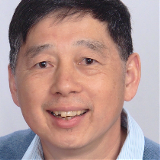
Dr. Xiong is the co-founder and Chief Scientific Officer of Cullgen, Inc. He was faculty at University of North Carolina at Chapel Hill from 1993 to 2020, where he held the William R. Kenan Distinguished Professorship of Biochemistry and served as the leader for the Cancer Cell Biology Program at UNC Lineberger Cancer Center. His academic research focused on the cell cycle control, cancer metabolism and the ubiquitin-proteosome system (UPS). He has extensively studied the cullin-RING family E3 ubiquitin ligases (CRLs) and discovered the catalytic subunits (ROC1 and ROC2), assembly mechanisms for CRL3 and CRL4, a key regulator (CAND1) of the CRLs and multiple disease-linked CRL substrates. These findings helped to establish CRLs as the largest family of E3 ligases (estimated to be ~300) that regulate many cellular processes. They also provided the insights for exploiting the UPS, CRL in particular, for the targeted protein degradation in drug discovery. He has published more than 200 peer-reviewed research articles and invited reviews. He is the recipient of numerous awards, including the Pew Scholar Award, AACR Gertrude Elion Cancer Research Award, UNC Battle Distinguished Cancer Research Award and elected AAAS fellow.
Hua Xu, PhD, Director, Mechanistic Biology & Profiling, AstraZeneca

Hua Xu received his PhD in Chemistry from Stony Brook University. After conducting his post-doctoral research at Albert Einstein College of Medicine, he joined Pfizer in 2013, and later received ACS Young Investigator Award in 2016. He led the chemical biology efforts for a number of Pfizer’s drug discovery programs in several therapeutic areas, such as immunology and inflammation, rare diseases, and cardiovascular & metabolic diseases. Hua then worked as Associate Director of Chemical Biology at Cygnal Therapeutics from 2020 to 2021, and built the chemical biology platform to support small molecule drug discovery programs and facilitate target discovery. Hua currently leads a group at AstraZeneca that is responsible for mechanism of action studies and compound profiling for potency and selectivity in support of the oncology portfolio.
Eugene Yeo, PhD, MBA, Professor, Cellular and Molecular Medicine, University of California, San Diego; Founding Member, Institute for Genomic Medicine
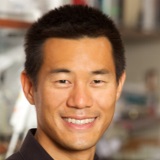
Gene Yeo, PhD, MBA is a Professor of Cellular and Molecular Medicine at the University of California San Diego (UCSD), a founding member of the Institute for Genomic Medicine and member of the UCSD Stem Cell Program and Moores Cancer Center. Dr. Yeo has a BSc in Chemical Engineering and a BA in Economics from the University of Illinois, Urbana-Champaign, a Ph.D. in Computational Neuroscience from Massachusetts Institute of Technology and an MBA from the UCSD Rady School of Management. Dr. Yeo serves as Co-Director of the Bioinformatics and Systems Biology Graduate Program and Associate Director of a Genetics T32 training program at UCSD. Dr. Yeo is a computational and experimental scientist who has contributed to RNA biology and therapeutics. His primary research interest is in understanding the importance of RNA processing and the roles that RNA binding proteins (RBPs) play in development and disease. Since inception, Dr. Yeo’s lab has focused on uncovering molecular principles by which RBPs affect gene expression, how RBP-mediated post-transcriptional gene networks contribute to cellular homeostasis in stem cells and the brain, and how mutations in RBPs lead to human developmental and neurodegenerative disease. His lab pioneered computational algorithms and experimental methods in human disease-relevant systems to conduct systematic and large-scale studies. These multidisciplinary methods combine machine learning, biochemistry, molecular biology, genomics, chemistry and materials research. His lab develops methods that are systematic, robust and adoptable, such as enhanced CLIP for the purposes of large-scale mapping of protein-RNA interactions (Van Nostrand et al, Nature Methods, 2016). Gene’s lab is a major contributor of resources to study RBPs that enable hundreds of labs across many areas of bioscience, such as the world’s largest resource of RBP-specific antibodies that facilitated generation and interpretation of the most comprehensive maps of RBP-binding sites to date for hundreds of RBPs (Van Nostrand et al, Nature, 2020). They have also systematically uncovered RBPs that condense into RNA granules during stress and demonstrated strategies to leverage these for therapeutic use in neurodegeneration (Markmiller et al, Cell, 2018; Fang et al, Neuron, 2019; Wheeler et al, Nature Methods, 2020). His lab also demonstrated in vivo RNA targeting with CRISPR/Cas proteins (Nelles et al, Cell, 2016) with proof of concept in repeat expansion disorders (Batra et al, Cell, 2017; Batra et al, Nature Biomedical Engineering, 2020). Recently his lab has developed the STAMP technology (Brannan et al, Nature Methods, 2021) which is the first transcriptome-wide method for identify RNA binding protein sites and translation measurements at single-cell resolution. Work from the Yeo lab has been highlighted in Nature Methods and Nature Reviews Genetics as “Method to Watch” and featured as a top story in Discover magazine. These efforts have led to clinical programs to develop medicines for RNA-related diseases.Dr. Yeo has authored more than 200 peer-reviewed publications including invited book chapters and review articles in the areas of neurodegeneration, RNA processing, computational biology and stem cell models; and served as Editor on two books on the biology of RNA binding proteins. Gene is on the Editorial Boards of the journals Cell Reports, Cell Research and eLife, and on the Advisory Board of Review commons. Gene joined UCSD as an Assistant Professor in 2008, was promoted with tenure to Associate Professor in 2014 and to Professor in 2016. Gene was the first Crick-Jacobs Fellow at the Salk Institute (2005-2008). Other awards include the Alfred P Sloan Fellowship in recognition of his work in computational molecular biology (2011), Alpha Chi Sigma-Zeta Chapter Krug Lecturer (2016), Singapore National Research Foundation Visiting Investigatorship Award (2017), the inaugural Early Career Award from the International RNA Society (2017), the Blavatnik National Award Finalist (2018 & 2019), San Diego Xconomy Awardee for ‘Big Idea’ (2019) and Highly Cited Researcher in Cross-Field category (2019, 2020, 2021), recognizing the world’s most influential researchers of the past decade. Gene is also a Paul Allen Distinguished Investigator (2020) and received the 2021 Elisa Izaurralde Award for Innovation in Research, Teaching and Service from the RNA Society. Gene is a co-founder of biotech companies which includes Locanabio, Eclipse Bioinnovations, Enzerna, Proteona, Trotana and Circ Bio. Gene serves or had served on the scientific advisory boards of the Allen Institute of Immunology, Locanabio, Eclipse Bioinnovations, Proteona, CircBio, Aquinnah, Cell Applications, Tecan, LGC, Sardona Therapeutics, Ladder Therapeutics, Insitro, Trotana, Nooma and Ribometrix. Gene is a senior advisor to Accelerator Life Sciences Partners. Gene’s lab has current or previous support from the National Institute of Health, National Science Foundation, California Institute for Regenerative Medicine, TargetALS, ALS Foundation, Department of Defense, Myotonic Dystrophy Association, Myotonic Dystrophy Foundation, Chan-Zuckerberg Initiative, Takeda, Genentech and Roche.
Wendy B. Young, PhD, BioPharma Discovery

Wendy Young, PhD, is a biotechnology, pharma, and life sciences executive and board advisor with more than 30 years of experience in the discovery and development of new medicines for patients. She currently serves as a board member and scientific advisor at several venture capital backed start-up companies and is an advisor at Google Ventures. Previously, Wendy was an executive partner at MPM Capital where she actively supported investments and new company builds. Prior to this role, she was the Senior Vice President, Small Molecule Drug Discovery, at Genentech, where for 15 years she actively built and led the research & discovery organization. Under her leadership, more than 25 clinical candidates progressed into development. Additionally, Wendy led the BTK discovery program and is co-inventor of fenebrutinib, which is currently in Phase 3 trials for multiple sclerosis. Prior to joining Genentech, Wendy held roles of increasing scientific leadership at Celera Genomics and Scios, a J&J company. Wendy is an inventor and/or author on more than 70 published patents and manuscripts. Wendy earned her PhD in chemistry from Princeton University under the guidance of E.C. Taylor and was an American Cancer Society Postdoctoral Fellow in the laboratories of Samuel Danishefsky at Sloan-Kettering Cancer Center.
Andrew Zhang, PhD, Director, Chemical Biology, AstraZeneca

Andrew Zhang is a Team Leader in the Chemical Biology Department at AstraZeneca. He joined AstraZeneca in 2013 with research interests in target deconvolution, particularly using chemical proteomics and orthogonal methods for identifying target engagement events and profiling selectivity. He is now leading the proteomics efforts around profiling the selectivity and mechanism of small molecule protein degraders. Andrew trained at the interface of chemistry and molecular and cell biology, obtaining a B.S. in Chemistry and a B.A. in Molecular and Cell Biology from the University of California, Berkeley, followed by Ph.D. studies with Professor David Spiegel at Yale University around small molecule immunomodulators. Prior to joining AstraZeneca, Andrew carried out postdoctoral trainings with the Drug Discovery Group at the Ontario Institute for Cancer Research (Toronto, Canada) with Dr. Rima Al-awar.
Donglu Zhang, PhD, Principal Scientist, Genentech Inc.

Donglu Zhang is a Senior Fellow in DMPK at Genentech. He is interested in applying drug metabolism studies in drug design and development of both small molecule, protein degraders, and antibody-drug conjugates (ADC) drugs. He has done numerous human mass balance studies, investigated pharmacokinetic drivers for efficacy of modalities, designed drug delivery approaches, and involved in IND, NDA/BLA submissions. He received the Sir James Black Award for discovery of and original research on Eliquis from British Pharmacological Society (2018), and the Ondetti and Cushman Award for invention of mass defect filtering method (MDF) from Bristol-Myers Squibb (2007). He has co-authored 130 peer-reviewed articles. He received his Ph.D. in Organic Chemistry from University of Utah.
Daohong Zhou, MD, Professor, Department of Biochemistry and Structural Biology, University of Texas Health San Antonio

Dr. Daohong Zhou is a professor in the Department of Biochemistry & Structural Biology and a Joe R. and Terry Lozano Long Distinguished Chair of Developmental Therapeutics at the Long School of Medicine, University of Texas Health San Antonio (UTHSA). Dr. Zhou also serves as the Co-Director of the CPRIT-supported Center of Innovative Drug Discovery (CIDD) and as the Associate Director for Drug Development at the Mays Cancer Center (MCC). Before he joined UTHSA in 2022, he was a Professor of Pharmacodynamics and Radiation Oncology at University of Florida (UF). He also served as the Associate Director for Translation and Drug Development and the Henry E. Innes Professorship of Cancer Research at the UF Health Cancer Center. Dr. Daohong Zhou has published more than 170 peer-reviewed scientific articles and book chapters. His research has led to the discovery of the first potent and broad-spectrum senolytic agent, ABT263 (a dual Bcl-2 and Bcl-xl inhibitor), that can selectively kill senescent cells. This discovery may lead to new therapeutics for various age-related diseases. More recently, he developed several proteolysis-targeting chimeras (PROTACs) that can target Bcl-xl and other proteins of interest for degradation. Dr. Zhou’s efforts in the development of promising senolytics and cancer therapeutics has led to the FDA approval of DT2216, a Bcl-xl PROTAC, in Phase I studies, and the founding of two biotechnology companies, Unity Biotechnology and Dialectic Therapeutics. Using the PROTAC drug development platform, he is developing additional specific antitumor and better senolytic agents.
Henry van den Bedem, PhD, Senior Vice President, Machine Learning Research & Cheminformatics, Atomwise Inc.

Henry van den Bedem is Senior Vice President of Machine Learning Research & Cheminformatics at Atomwise, Inc. Henry concurrently holds an Associate Adjunct Professor appointment with the Department of Therapeutic Sciences and Bioengineering at the University of California at San Francisco and was a 2018-2020 Mercator Fellow with the Deutsche Forschungsgemeinschaft (DFG), the German equivalent of the US National Science Foundation (NSF). Before joining Atomwise, Henry led a research group in computational structural protein dynamics at the SLAC National Accelerator Laboratory at Stanford University. His research group was funded by the US National Institutes of Health, the US Department of Energy, and by pharmaceutical companies. Henry holds a PhD from the University of Alabama at Birmingham and an MS from the Delft University of Technology, both in mathematics. He is the author of 158 peer-reviewed scientific publications and numerous open-source scientific software packages. He qualified for multiple Ironman World Championships and has been an All-American athlete (triathlon) since 2019.
スポンサー更新
スポンサー更新

